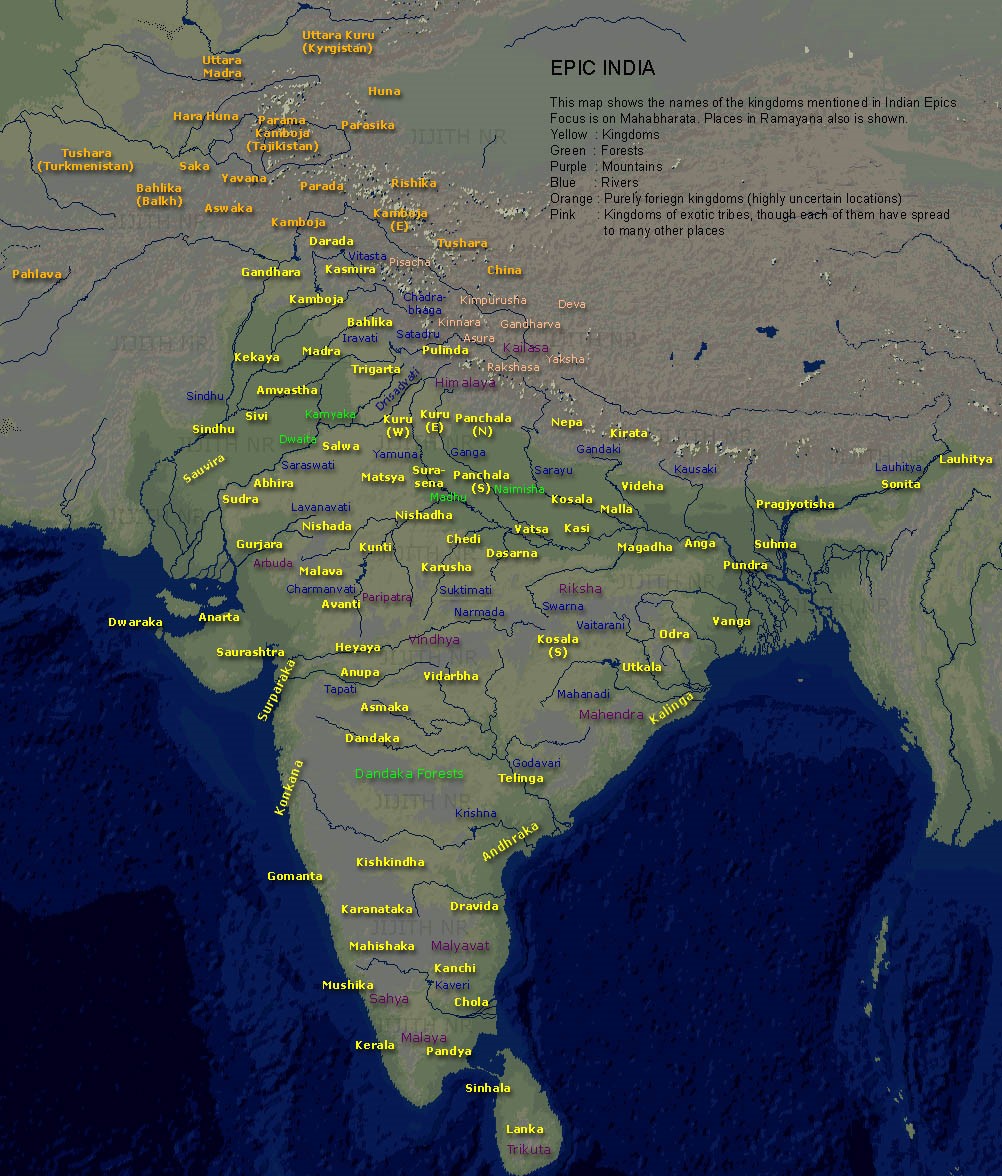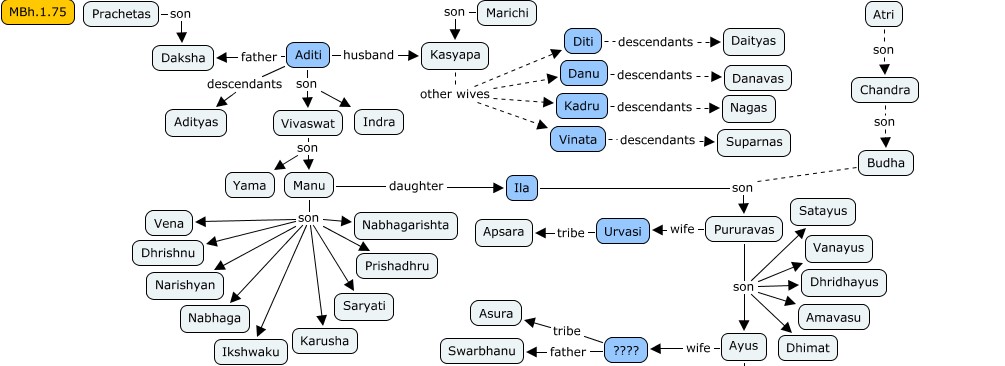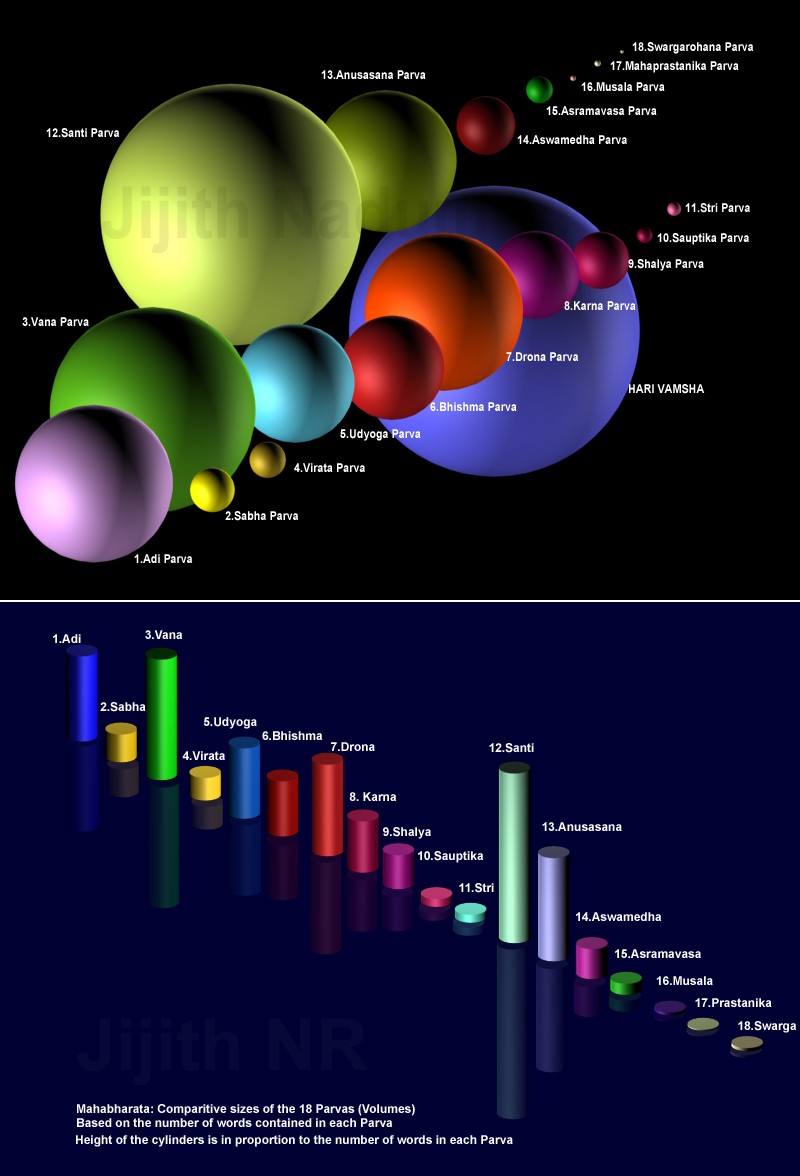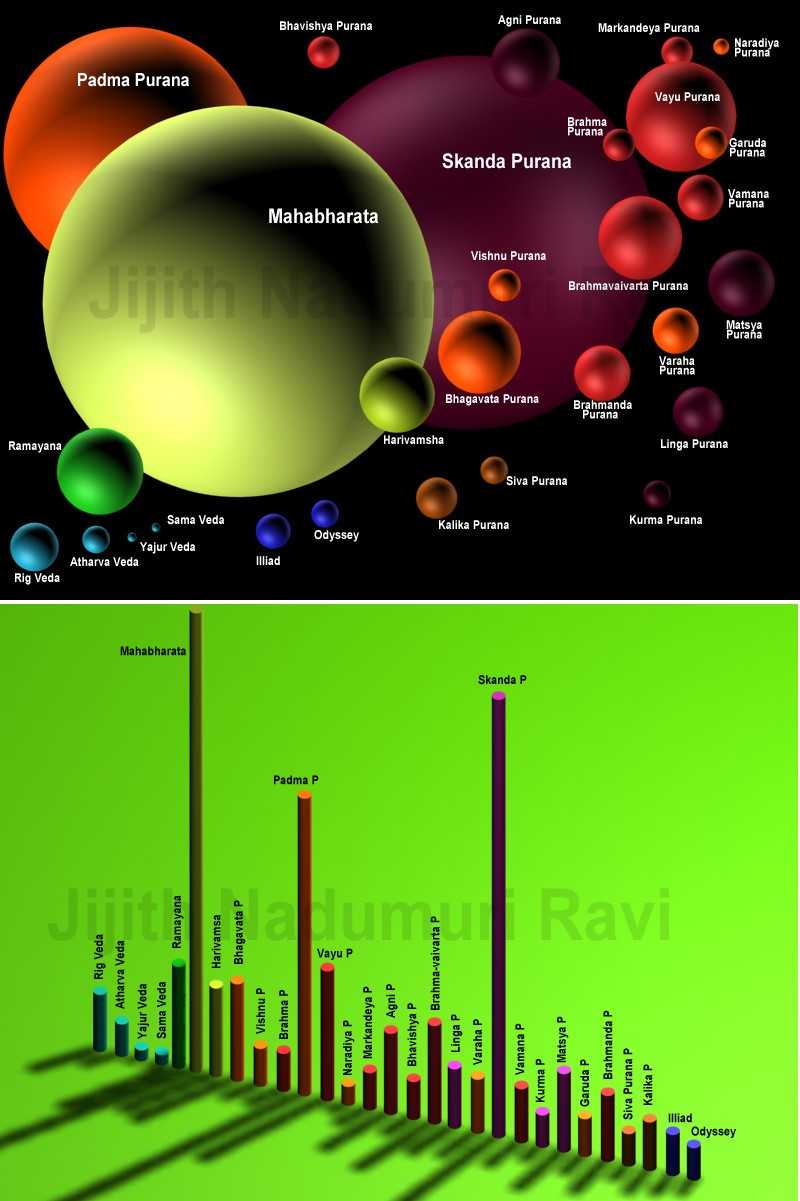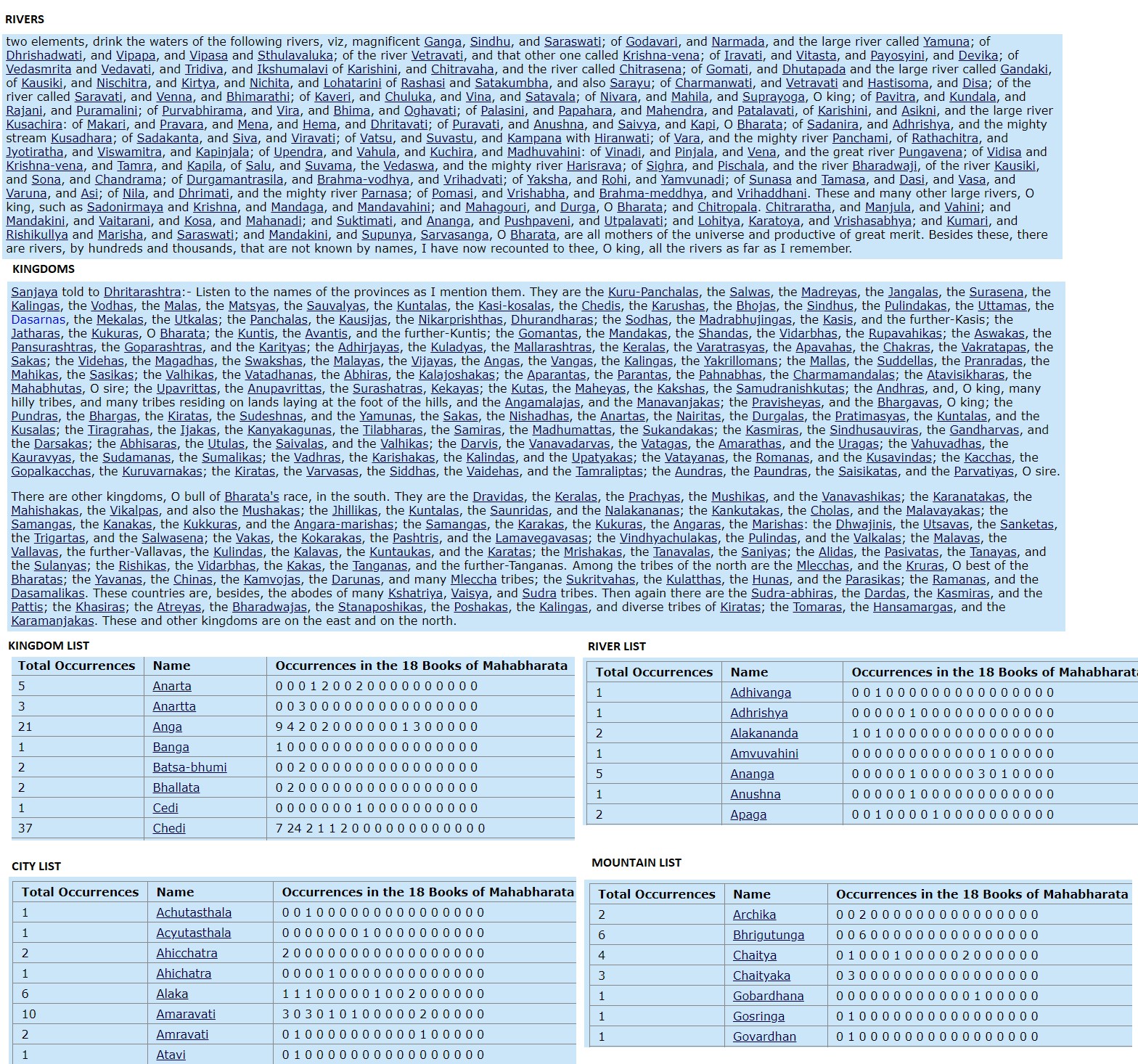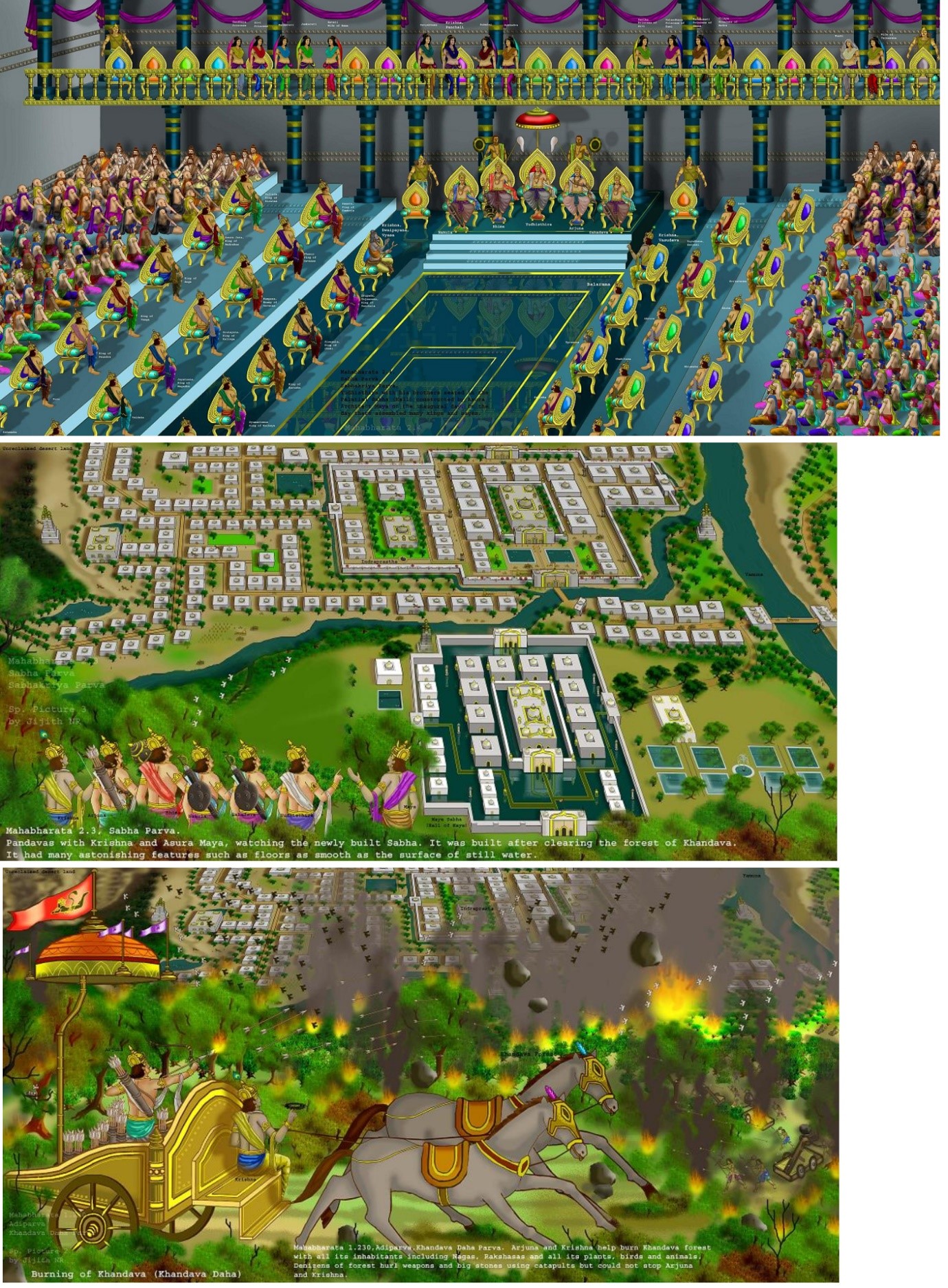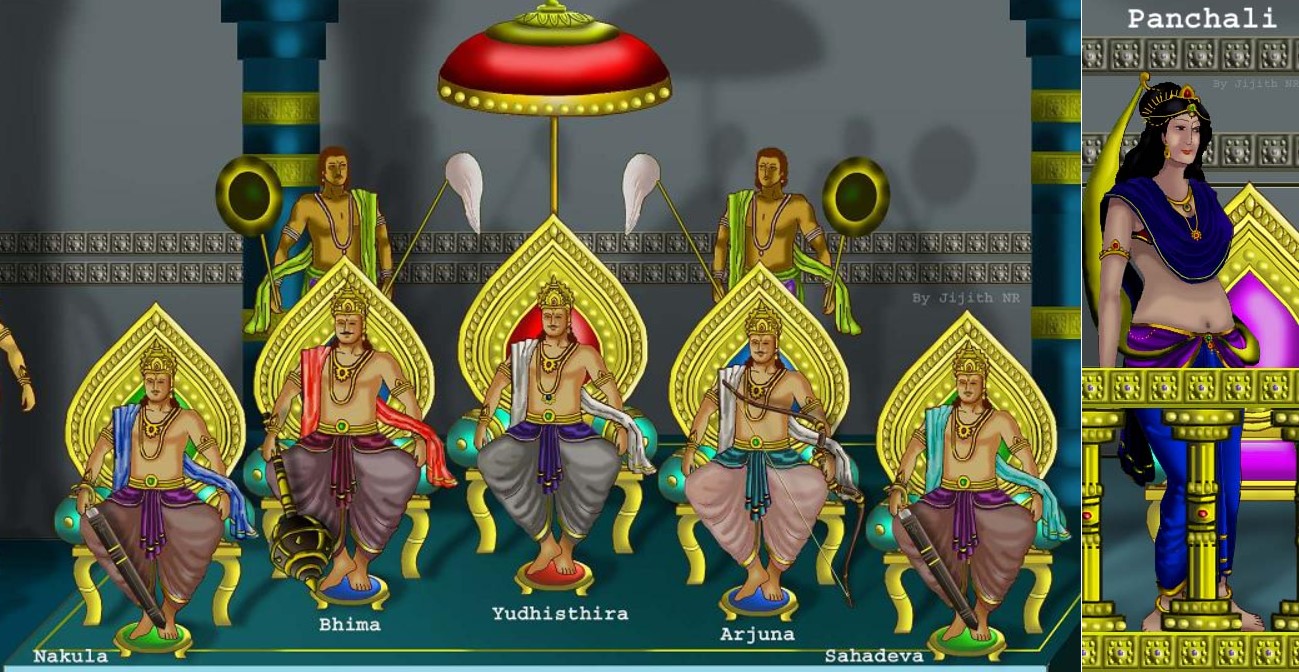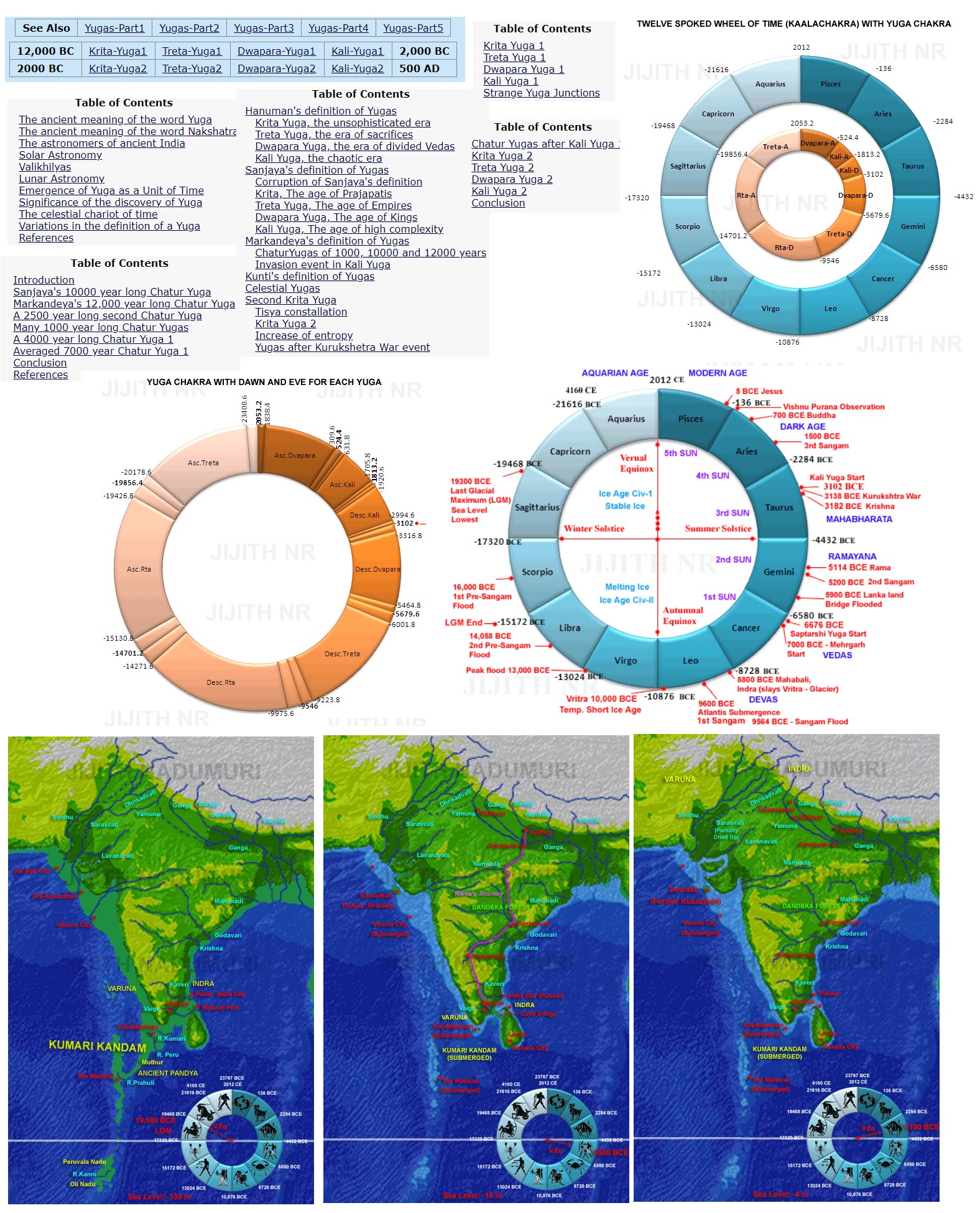"Mleccha is a dialect spoken in conversation between Vidura and Yudhisthira as reported in the Great Epic, Mahabharata. Mleccha are vrātya; they live in dvīpa (islands). Mleccha are not ‘foreigners’, but those who do not fully adhere to the practices of yajña. Vrātya are referred to in over 240 r̥ca-s in the R̥gveda. Atharva Veda notes that both vrātya and yajñika are children of Prajapati. Vrātya are rājanya. They are ascetics and also given to organizing themselves with arms to defend themselves. Thus, the picture that emerges from R̥gveda is that of people practicing both vrata and yajna. In fact, the yajna itself begins with a Mahavrata as described in the Aitareya āranyaka.Mlecchita vikalpa is referred to by Vatsyāyana as one of the 64 arts. It is interpreted as cipher writing or writing in pictures."
http://www.hindunet.org/saraswati/vikalpa1.htm
विजयार्ध पर्वत व गंगा सिन्धु, नदियों के कारण भरतक्षेत्र के छह खण्ड हो गये हैं। इनमें से दक्षिण वाला मध्यखण्ड आर्यखण्ड है। (देखें - आर्यखण्ड )]। शेष पाँचों ही खण्ड म्लेच्छखण्ड नाम से प्रसिद्ध हैं। -- Jaina Kośa
म्लेच्छ 'copper'; म्लेच्छ--मुख = म्लेच्छा* स्य = copper (so named because the complexion of the Greek and Muhammedan invaders of India was supposed to be copper-coloured)
म्लेच्छ 'a person who lives by agriculture or by making weapons'
Section 1. Excerpt from Jaina Kośa: म्लेच्छ
- म्लेच्छखण्ड निर्देश
ति. प./४/गाथा नं. सेसा विपंचखंडा णामेणं होंति म्लेच्छखंडत्ति। उत्तरतियखंडेसुं मज्झिमखंडस्स बहुमज्झे।२६८। गंगामहाणदीए अइढाइज्जेसु। कुंडजसरिपरिवारा हुवंति ण हु अज्जखंडम्मि।२४५। = [विजयार्ध पर्वत व गंगा सिन्धु, नदियों के कारण भरतक्षेत्र के छह खण्ड हो गये हैं। इनमें से दक्षिण वाला मध्यखण्ड आर्यखण्ड है। (देखें - आर्यखण्ड )]। शेष पाँचों ही खण्ड म्लेच्छखण्ड नाम से प्रसिद्ध हैं।२६८। गंगा महानदी की ये कुण्डों से उत्पन्न हुई (१४०००) परिवार नदियाँ म्लेच्छखण्डों में ही हैं, आर्यखण्ड में नहीं।२४५। (विशेष देखें - लोक / ७ )। - म्लेच्छमनुष्यों के भेद व स्वरूप
स. सि./३/३६/पृ./पंक्ति म्लेच्छा द्विविधाः - अन्तर्द्वीपजा कर्मभूमिजाश्चेति। (२३०/३)...ते एतेऽन्तर्द्वीपजा म्लेच्छाः। कर्मभूमिजाश्च शकयवनशवरपुलिन्दादयः। (२३१/६)। = म्लेच्छ दो प्रकार के हैं−अन्तर्द्वीपज और कर्मभूमिज। अन्तर्द्वीपों में उत्पन्न हुए अन्तर्द्वीपजम्लेक्ष हैं और शक, यवन, शवर व पुलिन्दादिक कर्मभूमिजम्लेच्छ हैं। (रा. वा./३/३६/४/२०४/१४, २६)।
भ. आ./वि./७८१/९३६/२६ इत्येवमादयो ज्ञेया अन्तर्द्वीपजा नराः। समुद्रद्वीपमध्यस्थाः कन्दमूलफलाशिनः। वेदयन्ते मनुष्यायुस्ते मृगोपमचेष्टिताः। = समुद्रों में (लवणोद व कालोद में) स्थित अन्तर्द्वीपों में रहने वाले तथा कन्द-मूल फल खाने वाले ये लम्बकर्ण आदि (देखें - आगे शीर्षक नं .३) अन्तर्द्वीपज मनुष्य हैं। जो मनुष्यायु का अनुभव करते हुए भी पशुओं की भाँति आचरण करते हैं।
म. पु./३१/१४१-१४२ इत्युपायैरुपायज्ञः साधयन्म्लेच्छभूभुजः। तेभ्यः कन्यादिरत्नानि प्रभोर्भोग्यान्युपाहरत्।१४१। धर्मकर्मबहिभूता इत्यमी म्लेच्छका मताः। अन्यथाऽन्यैः समाचारैः आर्यावर्तेन ते समाः।१४२। = इस प्रकार अनेक उपायों को जानने वाले सेनापति ने अनेक उपायों के द्वारा म्लेच्छ राजाओं को वश किया और उनसे चक्रवर्ती के उपभोग के योग्य कन्या आदि अनेक रत्न भेंट में लिये।१४१। ये लोग धर्म क्रियाओं से रहित हैं, इसलिए म्लेच्छ माने गये हैं। धर्म क्रियाओं के सिवाय अन्य आचरणों से आर्यखण्ड में उत्पन्न होने वाले मनुष्यों के समान हैं।१४२। [यद्यपि ये सभी लोग मिथ्यादृष्टि होते हैं परन्तु किसी भी कारण से आर्यखण्ड में आ जाने पर दीक्षा आदि को प्राप्त हो सकते हैं।− देखें - प्रब्रज्या / १ / ३ ।] त्रि. सा./९२१ दीवा तावदियंतरवासा कुणरा वि सण्णामा। = तीन अन्तर्द्वीपों में बसने वाले कुमानुष तिस तिस द्वीप के नाम के समान होते हैं। - अन्तर्द्वीपज म्लेच्छों का आकार
- लवणोद स्थित अन्तर्द्वीपों में (दृष्टि नं. १)
ति. प./४/२४८४-२४८८ एक्कोस्फलंगुलिका वेसणकाभासका य णामेहिं। पुव्वादिसुं दिसासुं चउदीवाणं कुमाणुसा होंति।२४८४। सुक्कलिकण्णा कण्णप्पावरणा लंबकण्णससकण्णा। अग्गिदिसादिसु कमसो चउद्दीवकुमाणुसा एदे।२४८५। सिंहस्ससाणमहिसव्वराहसद्दू-लघूककपिवदणा। सक्कुलिकण्णे कोरुगपहुदीणे अंतरेसु ते कमसो।२४८६। मच्छमुहा कालमुहा हिमगिरिपणिधीए पुव्वपच्छिमदो। मेसमुहगोमुहक्खा दक्खिणवेयड्ढपणिधीए।२४८७। पुव्वावरेण सिहरिप्पणिधीए मेघविज्जुमुहणामा। आदंसणहत्थिमुहा उत्तरवेयड्ढपणिधीए।२४८८। = पूर्वादिक दिशाओं में स्थित चार द्वीपों के कुमानुष क्रम से एक जाँघ वाले, पूँछ वाले, सींग वाले और गूँगे होते हुए इन्हीं नामों से युक्त हैं।२४८४। अग्नि आदिक विदिशाओं में स्थित ये चार द्वीपों के कुमानुष क्रम से शष्कुलीकर्ण, कर्ण प्रावरण, लंबकर्ण और शशकर्ण होते हैं।२४८५। शष्कुलीकर्ण और एकोरुक आदिकों के बीच में अर्थात् अन्तरदिशाओं में स्थित आठ द्वीपों के कुमानुष क्रम से सिंह, अश्व, श्वान, महिष, वराह, शार्दूल, घूक और बन्दर के समान मुख वाले होते हैं।२४८६। हिमवान् पर्वत के प्रणिधि भाग में पूर्व-पश्चिम दिशाओं में क्रम से मत्स्यमुख व कालमुख तथा दक्षिणविजयार्ध के प्रणिधि भाग में मेषमुख व गोमुख कुमानुष होते हैं।२४८७। शिखरी पर्वत के पूर्व-पश्चिम प्रणिधि भाग में क्रम से मेघमुख व विद्युन्मुख तथा उत्तर विजयार्ध के प्रणिधि भाग में आदर्शमुख व हस्तिमुख कुमानुष होते हैं।२४८८। (भ. आ./वि./७८१/९३६/२३ पर उद्धृत श्लो. नं. ९−१०); (त्रि. सा./९१६−९१९); (ज. प./५३−५७)। - लवणोद स्थित अन्तर्द्वीपों में (दृष्टि नं. २)
ति. प./४/२४९४-२४९९ एक्कोरुकवेसणिका लंगुलिका तह य भासगा तुरिमा। पुव्वादिसु वि दिससुं चउदीवाणं कुमाणुसा कमसो।२४९४। अणलादिसु विदिसासुं ससकण्णाताण उभयपासेसुं। अट्ठंतरा य दीवा पुव्वगिदिसादिगणणिज्जा।२४९५। पुव्वदिसट्ठि-एक्कोरुकाण अग्गिदिसट्ठियससकण्णाणं विच्चालादिसु कमेण अट्ठंतरदीवट्ठिदकुमाणुसणामाणि गणिदव्वाकेसरिमुहा मणुस्सा चक्कुलि-कण्णा अचक्कुलिकण्णा। साणमुहा कपिवदणा चक्कुलिकण्णा अचक्कुलीकण्णा।२४९६। हयकणाइं कमसो कुमाणुसा तेसु होंति दीवेसुं। घूकमुहा कालमुहा हिमवंतगिरिस्स पुव्वपच्छिमदो।२४९७। गोमुहमेसमुहक्खा दक्खिणवेयङ्ढपणिधिदीवेसुं। मेघमुहा विज्जुमुहा सिहरिगि- रिंदस्स पुच्छिमदो।२४९८। दप्पणगयसरिसमुहा उत्तरवेयड्ढपणिधि भागगदा। अब्भंतरम्मि भागे बाहिरए होंति तम्मेत्ता।२४९९। = पूर्वादिक दिशाओं में स्थिर चार द्वीपों के कुमानुष क्रम से एक जाँघ वाले, सींग वाले, पूँछवाले और गूँगे होते हैं।२४९४। आग्नेय आदिक दिशाओं के चार द्वीपों में शशकर्ण कुमानुष होते हैं। उनके दोनों पार्श्वभागों में आठ अन्तरद्वीप हैं जो पूर्व आग्नेय दिशादि क्रम से जानना चाहिए।२४९५। पूर्व दिशा में स्थित एकोरुक और अग्नि दिशा में स्थित शशकर्ण कुमानुषों के अन्तराल आदिक अन्तरालों में क्रम से आठ अन्तरद्वीपों में स्थित कुमानुषों के नामों को गिनना चाहिए। इन अन्तरद्वीपों में क्रम से केशरीमुख, शष्कुलिकर्ण, अशष्कुलिकर्ण, श्वानमुख, वानरमुख, अशष्कुलिकर्ण, शष्कुलिकर्ण और हयकर्ण कुमानुष होते हैं। हिमवान् पर्वत के पूर्व-पश्चिम भागों में क्रम से वे कुमानुष घूकमुख और कालमुख होते हैं।२४९६-२४९७। दक्षिण विजयार्ध के प्रणिधिभागस्थ द्वीपों में रहने वाले कुमानुष गोमुख और मेषमुख, तथा शिखरी पर्वत के पूर्व-पश्चिम द्वीपों में रहने वाले वे कुमानुष मेघमुख और विद्युन्मुख होते हैं।२४९८। उत्तरविजयार्ध के प्रणिधिभागों में स्थित वे कुमानुष क्रम से दर्पण और हाथी के सदृश मुखवाले होते हैं। जितने द्वीप व उनमें रहने वाले कुमानुष अभ्यन्तर भाग में है, उतने ही वे बाह्य भाग में भी विद्यमान हैं।२४९९। (स. सि./३/३६/२३०/९); (रा. वा./३/३६/४/२०४/२०); (ह. पु./५/४७१-४७६)। - कालोदस्थित अन्तरद्वीपों में
ति. प./४/२७२७-२७३४ मुच्छमुहा अभिकण्णा पवित्रमुहा तेसु हत्थिकण्णा य। पुव्वादिसु दीवेसु विचिट्ठंति कुमाणुसा कमसो।२७२७। अणिलादियासु सूवरकण्णा दीवेसु ताण विदिसासं। अट्ठंतरदीवेसुं पुव्वग्गिदिसादि गणणिज्जा।२७२८। चेट्ठंति अट्टकण्णा मज्जरमुहा पुणो वि तच्चेय। कण्णप्पावरणा गजवण्णा य मज्जाखयणा य।२७२९। मज्जरमुहा य तहा गोकण्णा एवमट्ठ पत्तेक्कं। पुव्वपवण्णिदबहुविहपाव-फलेहिं कुमणसाणि जायंति।२७३०। पुव्वावरपणिधीए सिसुमारमुहा तह य मयरमुहा। चेट्ठंति रुप्पगिरिणो कुमाणुसा कालजल-हिम्मि।२७३१। वयमुहवग्गमुहक्खा हिमवंतणगस्स पुव्वपच्छिमदो। पणिधीए चेट्ठंते कुमाणुसा पावपाकेहिं।२७३२। सिहरिस्स तरच्छमुहा सिगालवयणा कुमाणसा होंति। पुव्वावरपणिधीए जम्मंतरदरियकम्मेहिं।२७३३। दीपिकमिंजारमुहा कुमाणुसा होंति रुप्पसेलस्स। पुव्वावरपणिधीए कालोदयजलहिदीवम्मि।२७३४। = उनमें से पूर्वादिक दिशाओं में स्थित द्वीपों में क्रम से मत्स्यमुख, अभिकर्ण (अश्वकर्ण), पक्षिमुख और हस्तिकर्ण कुमानुष होते हैं।२७२७। उनकी वायव्यप्रभृति विदिशाओं में स्थित द्वीपों में रहने वाले कुमानुष शूकरकर्ण होते हैं। इसके अतिरिक्त पूर्वाग्निदिशादिक क्रम से गणनीय आठ अन्तरद्वीपों में कुमानुष निम्न प्रकार स्थित हैं।२७२८। उष्ट्रकर्ण, मार्जारमुख, पुनः मार्जारमुख, कर्णप्रावरण, गजमुख, मार्जारमुख, पुनः मार्जारमुख और गोकर्ण, इन आठ में से प्रत्येक पूर्व में बतलाये हुए बहुत प्रकार के पापों के फल से कुमानुष जीव उत्पन्न होते हैं।२७२९-२७३०। काल समुद्र के भीतर विजयार्ध के पूर्वापर पार्श्वभागों में जो कुमानुष रहते हैं, वे क्रम से शिशुमारमुख और मकरमुख होते हैं।२७३१। हिमवान् पर्वत के पूर्व-पश्चिम पार्श्वभागों में रहने वाले कुमानुष क्रम से पापकर्मों के उदय से वृकमुख और व्याघ्रमुख होते हैं।२७३२। शिखरी पर्वत के पूर्व-पश्चिम पार्श्वभागों में रहने वाले कुमानुष पूर्व जन्म में किये हुए पापकर्मों से तरक्षमुख (अक्षमुख) और शृगालमुख होते हैं।२७३३। विजयार्ध पर्वत के पूर्वापर प्रणिधिभाग में कालोदक-समुद्रस्थ द्वीपों में क्रम से द्वीपिकमुख और भृंगारमुख कुमानुष होते हैं।२७३४। (ह. पु./५/५६७-५७२)। - म्लेच्छ मनुष्यों का जन्म, आहार गुणस्थान आदि
ति. प./४/गाथा नं. एक्कोरुगा गुहासुं वसंति भुंजंति मट्टियं मिट्ठं। सेसा तरुतलवासा पुप्फेहिं फलेहिं जीवंति।२४८९। गव्भादो ते मणुवाजुगलंजुगला सुहेण णिस्सरिया। तिरिया समुच्चिदेहिं दिणेहिं धारंति तारुण्णं।२५१२। वेधणुसहस्सतुंगा मंदकसाया पियंगुसामलया। सव्वे ते पल्लाऊ कुभोगभूमोए चेट्ठंति।२५१३। तब्भूमिजोग्गभोगं भोत्तूणं आउसस्स अवसाणे। कालवसं संपत्ता जायंते भवणतिदयम्मि।२५१४। सम्मद्दंसणरयणं गहियं जेहिं णरेहिं तिरिएहिं। दीवेसु चउविहेसुं सोहम्मदुगम्मि जायंते।२५१५। सव्वेसिं भोगभुवे दो गुणठाणाणि सव्व्कालम्मि। दीसंति चउवियप्पं सव्वमिलिच्छम्मि मिच्छत्तं।२९३७।=- इन उपरोक्त सब अन्तर्द्वीपज म्लेच्छों में से, एकोरुक (एक टा̐गवाले) कुमानुष गुफाओं में रहते हैं और मीठी मिट्टी की खाते हैं। शेष सब वृक्षों के नीचे रहते हैं और (कल्पवृक्षों के) फलफूलों से जीवन व्यतीत करते हैं।२४८९। (स.सि./३/३/२३१/३); (रा.वा./३/३/४/२०४/२४); (ज.प./१०/५८,८२); (त्रि.सा./१२०)।
- वे मनुष्य व तिर्यंच युगल-युगलरूप में गर्भ से सुखपूर्वक जन्म लेकर समुचित (उनचास) दिनों में यौवन अवस्था को धारण करते हैं।२५१२। (ज.प./१०/८०)।
- वे सब कुमानुष २००० धनुष ऊ̐चे, मन्दकषायी, प्रियंगु के समान श्यामल और एक पल्यप्रमाण आयु से युक्त होकर कुभोगभूमि में स्थित रहते हैं।२५१३। (ज.प./१०/१०/८१८२)।
- पश्चात् वे उस भूमि के योग्य भोगों को भोगकर आयु के अन्त में मरण को प्राप्त हो भवनत्रिक देवों में उत्पन्न होते हैं।२५१४। जिन मनुष्यों व तिर्यंचों ने इन चार प्रकार के द्वीपों में (दिशा, विदिशा, अन्तर्दिशा तथा पर्वतों के पार्श्व भागों में स्थित, इन चार प्रकार के अन्तर्द्वीपों में) सम्यग्दर्शनरूप रत्न को ग्रहण कर लिया है, वे सौधर्मयुगल में उत्पन्न होते हैं।२५१५। (ज.प./१०/८३८)।
- सब भोगभूमिजों में (भोग व कुभोगभूमिजों में) दो गुणस्थान (प्र. व चतु.) और उत्कृष्टरूप से चार (१४) गुणस्थान रहते हैं। सब म्लेच्छखण्डों में एक मिथ्यात्व गुणस्थान ही रहते हैं।२९३७।
- म्लेच्छ खण्ड से आर्यखण्ड में आये हुए कर्मभूमिज म्लेच्छ तथा उनकी कन्याओं से उत्पन्न हुई चक्रवर्ती की सन्तान कदाचित् प्रव्रज्या के योग्य भी होते हैं। ( देखें - प्रव्रज्या / १ / ३ )।
देखें - काल / ४ −(कुमानुषों या अन्तर्द्वीपों में सर्वदा जघन्य भोगभूमि की व्यवस्था रहती है। (त्रि.सा./भाषा/९२०)।
- कुमानुष म्लेच्छों में उत्पन्न होने योग्य परिणाम
देखें - आयु / ३ / १० (मिथ्यात्वरत, व्रतियों की निन्दा करने वाले तथा भ्रष्टाचारी आदि मरकर कुमानुष होते हैं।)।
देखें - पाप / ४ (पाप के फल से कुमानुषों में उत्पन्न होते हैं।)।
http://www.jainkosh.org/wiki/म्लेच्छ
Section 2. शब्दकल्पद्रुमः (म्लेच्छ:)
म्लेच्छ, कि देश्योक्तौ । इति कविकल्पद्रुमः ॥ (चुरा०-वा भ्वा०-पर०-अक०-सक० च-सेट् ।) देश्याग्राम्या उक्तिर्देश्योक्तिरसंस्कृतकथनमित्यर्थः ।कि, म्लेच्छयति म्लेच्छति मूढः । अन्तर्विद्यामसौविद्बान्न म्लेच्छति धृतव्रत इति हलायुधः ॥अनेकार्थत्वादव्यक्तशब्देऽपि । तथा चामरः ।अथ म्लिष्टमविस्पष्टमिति । म्लेच्छ व्यक्तायां वाचिइति प्राञ्चः । तत्र रमानाथस्तु । म्लेच्छति वटु-र्व्यक्तं वदतीत्यर्थः । अव्यक्तायामिति पाठे कुत्-सितायां वाचीत्यर्थः ।‘तत्सादृश्यमभावश्च तदन्यत्वं तदल्पता ।अप्राशस्त्यं विरोधश्च नञर्थाः षट् प्रकीर्त्तिताः ॥’इति भाष्यवचनेन नञोऽप्राशस्त्यार्थत्वात् इतिव्याख्यानाय हलायुधोक्तमुदाहृतवान् । इतिदुर्गादासः ॥
म्लेच्छं, क्ली, (म्लेच्छस्तद्देशः उत्पत्तिस्थानत्वेना-स्त्यस्य । अर्शआद्यच् ।) हिङ्गुलम् । इतिराजनिर्घण्टः ॥ (तथास्य पर्य्यायः ।“हिङ्गुलन्दरदं म्लेच्छमिङ्गुलञ्चूर्णपारदम् ॥”इति भावप्रकाशस्य पूर्ब्बखण्डे प्रथमे भागे ॥)
म्लेच्छः, पुं, (म्लेच्छयति वा म्लेच्छति असंस्कृतंवदतीति । म्लेच्छ् + अच् ।) किरातशवरपुलि-न्दादिजातिः । इत्यमरः ॥ पामरमेदः । पाप-रक्तः । अपभाषणम् । इति मेदिनी । छे, ६ ॥म्लेच्छादीनां सर्व्वधर्म्मराहित्यमुक्तं यथा, हरि-वंशे । १४ । १५ -- १९ ।“सगरः स्वां प्रतिज्ञाञ्च गुरोर्व्वाक्यं निशम्य च ।धर्म्मं जघान तेषां वै वेशान्यत्वं चकार ह ॥अर्द्धं शकानां शिरसो मुण्डयित्वा व्यसर्जयत् ।जवनानां शिरः सर्व्वं काम्बोजानान्तथैव च ॥पारदा मुक्तकेशाश्च पह्नवाः श्मश्रुधारिणः ।निःस्वाध्यायवषट्काराः कृतास्तेन महात्मना ॥शका जवनकाम्बोजाः पारदाः पह्नवास्तथा ।कोलसप्याः समहिषा दार्व्वाश्चोलाः सकेरलाः ।सर्व्वे ते क्षत्त्रियास्तात धर्म्मस्तेषां निराकृतः ॥वशिष्ठवचनाद्राजन् सगरेण महात्मना ॥”शकानां शकदेशोद्भवानां क्षत्त्रियाणाम् । एवंजवनादीनामिति । अत्र जवनशब्दस्तद्देशोद्भव-वाची चवर्गतृतीयादिः । जवनो देशवेगिनो-रिति त्रिकाण्डशेषाभिधानदर्शनात् ॥ * ॥ तेषांम्लेच्छत्वमप्युक्तं विष्णुपुराणे । तथाकृतान् जवना-दीनुपक्रम्य ते चात्मधर्म्मपरित्यागात् म्लेच्छत्वंययुरिति । बौधायनः ।“गोमांसखादको यश्च विरुद्धं बहु भाषते ।सर्व्वाचारविहीनश्च म्लेच्छ इत्यभिधीयते ॥”इति प्रायश्चित्ततत्त्वम् ॥ * ॥अपिच । देवयान्यां ययातेर्द्वौ पुत्त्रौ यदुः तुर्चसुश्च ।शर्म्मिष्ठायां त्रयः पुत्त्राः द्रुह्युः अनुः पुरुश्च ।तत्र यदुप्रभृतयश्चत्वारः पितुराज्ञाहेलनं कृत-वन्तः पित्रा शप्ताः । ज्येष्ठपुत्त्रं यदुं शशाप तववंशे राजा चक्रवर्त्ती मा भूदिति । तुर्व्वसु-द्रुह्य्वनून् शशाप युष्माकं वंश्या वेदवाह्या म्लेच्छाभविष्यन्ति । इति श्रीभागवतमतम् ॥ * ॥(“असृजत् पह्नवान् पुच्छात् प्रस्रावाद्द्राविडान्शकान् ।योनिदेशाच्च यवनान् शकृतः शवरान् बहून् ॥मूत्रतश्चासृजत् काञ्चीञ्छरभांश्चैव पार्श्वतःपौण्ड्रान् किरातान् यवनान् सिंहलान् वर्व्वरान्खशान् ॥चियुकांश्च पुलिन्दांश्च चीनान् हूनान् सके-रलान् ।ससर्ज्ज फेनतः सा गौर्म्लेच्छान् बहुविधानपि ॥”सा वशिष्ठस्य धेनुः । इति महाभारते । १ । १७६ ।३५ -- ३७ ॥) अन्यच्च । “शकजवनकाम्बोज-पारदपह्नवा हन्यमानास्तत्कुलगुरुं वशिष्ठंशरणं ययुः । अथैतान् वशिष्ठो जीवन्मृतकान्कृत्वा सगरमाह । वत्स वत्सालमेभिर्जीवन्मृत-कैरनुसृतैः । एते च मयैव त्वत्प्रतिज्ञापालनायनिजधर्म्मद्बिजसङ्गपरित्यागं कारिताः । सतथेति तद्गुरुवचनमभिनन्द्य तेषां वेशान्य-त्वमकारयत् । जवनान्मुण्डितशिरसोऽर्द्धमुण्डान्शकान् प्रलम्बकेशान् पारदान् पह्नवांश्च श्मश्रु-धरान्निःस्वाध्यायवषट्कारानेतानन्यांश्च क्षत्त्रि-यांश्चकार । ते चात्मधर्म्मपरित्यागाद्ब्राह्मणैश्चपरित्यक्ता म्लेच्छतां ययुः ।” इति विष्णुपुराणे । ४ ।३ । १८ -- २१ ॥ * ॥ प्रकारान्तरेण तस्योत्-पत्तिर्यया, --सूत उवाच ।“वंशे स्वायम्भुवस्यासीदङ्गो नाम प्रजापतिः ।मृत्योस्तु दुहिता तेन परिणीतातिदुर्मुखी ॥सुतीर्था नाम तस्यास्तु वेनो नाम सुतःपुरा ।अधर्म्मंनिरतः कामी बलवान् वसुधाधिपः ।लोकेऽप्यधर्म्मकृज्जातः परभार्य्यापहारकः ॥धर्म्मचारप्रसिद्ध्यर्थं जगतोऽस्य महर्षिभिः ।अनुनीतोऽपि न ददावनुक्षां स यदा ततः ॥शापेन मारयित्वैनमराजकभयार्द्दिताः ।ममन्थुर्ब्राह्मणास्तस्य बलाद्देहमकल्भषाः ॥तत्कायान्मथ्यमानात्तु निपेतुर्म्लेच्छजातयः ।शरीरे मातुरंशेन कृष्णाञ्जनसमप्रभाः ॥”इति मत्स्यपुराणे । १० । ३ -- ८ ॥ * ॥म्लेच्छभाषाभ्यासनिषेधो यथा, --“न सातयेदिष्टकाभिः फलानि वै फलेन तु ।न म्लेच्छभाषां शिक्षेत नाकर्षेच्च पदासनम् ॥”इति कौर्म्म्ये उपविभागे १५ अध्यायः ॥ * ॥तस्य मध्यमा तामसी गतिर्यथा, मानवे ।१२ । ४३ ।“हस्तिनश्च तुरङ्गाश्च शूद्रा म्लेच्छाश्च गर्हिताः ।सिंहा व्याघ्रा वराहाश्च मध्यमा तामसीगतिः ॥”(मन्त्रणाकाले म्लेच्छापसारणमुक्तं यथा, मनु-संहितायाम् । ७ । १४९ ।“जडमूकान्धवधिरांस्तैर्य्यग्योनान् वयोऽति-गान् ।स्त्रीम्लेच्छव्याधितव्यङ्गान् मन्त्रकालेऽपसार-येत् ॥”“अथवा एवंविधा मन्त्रिणो न कर्त्तव्याः । बुद्धि-विभ्रमसम्भवात् ।” इति तद्भाष्ये मेधातिथिः ॥म्लेच्छानां पशुधर्म्मित्वम् । यथा, महाभारते । १ ।८४ । १५ ।“गुरुदारप्रसक्तेषु तिर्य्यग्योनिगतेषु च ।पशुधर्म्मिषु पापेषु म्लेच्छेषु त्वं भविष्यसि ॥”)
म्लेच्छकन्दः, पुं, (म्लेच्छप्रियः कन्द इति मध्यपदलोपी कर्म्मधारयः ।) लशुनम् । इति राज-निर्घण्टः ॥ (तस्य पर्य्यायो यथा, --“लशुनस्तु रसोनः स्यादुग्रगन्धो महौषधम् ।अरिष्टो म्लेच्छकन्दश्च पवनेष्टो रसोनकः ॥”इति भावप्रकाशस्य पूर्ब्बखण्डे प्रथमे भागे ॥)
म्लेच्छजातिः, स्त्री, (म्लेच्छस्य जातिरिति षष्ठी-तत्पुरुषः म्लेच्छरूपा जातिरिति कर्म्मधारयोवा ।) गोमांसखादकबहुविरुद्धभाषकसर्व्वा-चारविहीनवर्णः । यथा, --“गोमांसखादको यस्तु विरुद्धं बहु भाषते ।सर्व्वाचारविहीनश्च म्लेच्छ इत्यभिधीयते ॥”इति प्रायश्चित्ततत्त्वधृतबौधायनवचनम् ॥अपि च ।“भेदाः किरातशवरपुलिन्दा म्लेच्छजातयः ॥”इत्यमरः । २ । ४० । २० ॥अन्यच्च ।“पौण्ड्रकाश्चौड्रद्रविडाः काम्बोजा शवनाःशकाः ।पारदाः पह्नवाश्चीनाः किराताः दरदाःखशाः ॥मुखबाहूरुपज्जानां या लोके जातयो बहिः ।म्लेच्छवाचश्चार्य्यवाचः सर्व्वे ते दस्यवः स्मृताः ॥”इति मानवे १० अध्यायः ॥
म्लेच्छदेशः, पुं, (म्लेच्छानां देशः म्लेच्छप्रधानोदेशो वा ।) चातुर्व्वर्ण्यव्यवस्थादिरहित-स्थानम् । तत्पर्य्यायः । प्रत्यन्तः २ । इत्यमरः ।२ । १ । ७ ॥ भारतवर्षस्यान्तं प्रतिगःप्रत्यन्तः । म्लेच्छति शिष्टाचारहीनो भवत्यत्रम्लेच्छः अल् । स चासौ देशश्चेति म्लेच्छदेशः ।किंवा म्लेच्छयन्ति असंस्कृतं वदन्ति शिष्टा-चारहीना भवन्तीति वा पचाद्यचि म्लेच्छानीचजातयः तेषां देशो म्लेच्छदेशः । भारतवर्ष-स्यान्तः शिष्टाचाररहितः कामरूपवङ्गादिः ।उक्तञ्च ।चातुर्व्वर्ण्यव्यवस्थानं यस्मिन् देशे न विद्यते ।म्लेच्छदेशः स विज्ञेय आर्य्यावर्त्तस्ततः पर-मिति ॥”इति भरतः ॥(अपि च, मनुः । २ । २३ ।“कृष्णसारस्तु चरति मृगो यत्र स्वभावतः ।स ज्ञेयो यज्ञियो देशो म्लेच्छदेशस्ततःपरम् ॥”)
म्लेच्छभोजनं, क्ली, (भुज्यते यदिति । भुज् + कर्म्मणिल्युट् । ततो म्लेच्छानां भोजनम् ।) यावकः ।इति शब्दरत्नावली ॥
म्लेच्छभोजनः, पुं, (भुज्यतेऽसौ इति । भुज् +ल्युट् । म्लेच्छानां भोजनः । (गोधूमः । इतित्रिकाण्डशेषः ॥
म्लेच्छमण्डलं, क्ली, (म्लेच्छानां मण्डलं समूहोऽत्र ।)म्लेच्छदेशः । इति हेमचन्द्रः ॥
म्लेच्छमुखं, क्ली, (म्लेच्छे म्लेच्छदेशे मुखमुत्पत्ति-रस्य । इत्यमरटीकायां रघुनाथः ।) ताम्रम् ।इत्यमरः । २ । ९ । ९७ ॥ (तथास्य पर्य्यायः ।“ताम्रमौदुम्बरं शुल्वमुदुम्बरमपि स्मृतम् ।रविप्रियं म्लेच्छमुखं सूर्य्यपर्य्यायनामकम् ॥”इति भावप्रकाशस्य पूर्ब्बखण्डे प्रथमे भागे ॥“ताम्रमौडुम्बरं शूल्वं विद्यात् म्लेच्छमुख-न्तथा ॥”इति गारुडे २०८ अध्याये ॥)
म्लेच्छाशः, पुं, (म्लेच्छैरश्यते इति । अश् + कर्म्मणि+ घञ् ।) म्लेच्छभोजनः । गोधूमः । इतिकेचित् ॥
म्लेच्छास्यं, क्ली, (म्लेच्छे म्लेच्छदेशे आस्यमुत्पत्ति-रस्य ।) ताम्रम् । इति हारावली ॥
म्लेच्छितं, क्ली, (म्लेछ् देश्योक्तौ + क्तः ।) म्लेच्छ-भाषा । अपशब्दः । तत्पर्य्यायः । परभाषा २ ।इति हारावली ॥
https://sa.wikisource.org/wiki/शब्दकल्पद्रुमः
Section 3. वाचस्पत्यम् (म्लेच्छ:)
म्लेच्छ अपशब्दे वा चु० उभ० पक्षे भ्वा० पर० अक०सेट् । म्लेच्छयति ते म्लेच्छति अमम्लेच्छत् त अम्लेच्छीत्
म्लेच्छ पु० म्लेच्छ--घञ् । १ अपशब्दे “म्लेच्छोह वा नामयदप्रशब्द” इति श्रुतिः । कर्त्तरि अच् । २ पामरजातौ,३ नीचजातौ च पुंस्त्री० स्त्रियां ङीष् “गोमांसखादको यस्तु विरुद्धं बहु भाषते । सर्चाचारविहीनश्च म्लेच्छइत्यभिधीयते” बौधायनः । ४ पापरते त्रि० मेदि० ।५ हिङ्गुले न० राजनि० ।म्लेच्छकन्द पु० म्लेच्छप्रियः कन्दः शा० त० । लशुने राजनि०म्लेच्छजाति स्त्री म्लेच्छाभिधा जातिः । गोमांसादिभक्षकेकिरातादिजातिभेदे अमरः ।
म्लेच्छदेश पु० म्लेच्छाधारो देशः । चातुर्वर्ण्याचाररहितेदेशे अमरः । “चातुर्वर्ण्यव्यवस्थानं यस्मिन् देशे नविद्यते । म्लेच्छदेशः स विज्ञेय आर्य्यावर्त्तस्ततःपरम्” ।
म्लेच्छभोजन न० म्लेच्छैर्भुज्यते भुज--कर्मणि ल्युट् ।१ यावके अन्नभेदे शब्दर० । २ गोधूमे पु० त्रिका० ।
म्लेच्छमण्डल न० ६ त० । म्लेच्छदेशे हेमच० ।
म्लेच्छमुख न० म्लेच्छानां मुखमिव रक्तत्वात् । ताम्रे अमरः ।म्लेच्छास्यमप्यत्र हारा० ।
म्लेच्छित न० म्लेच्छ--क्त । अपशब्दे असंस्कृतशब्दे हारा० ।
https://sa.wikisource.org/wiki/वाचस्पत्यम्/
Section 4. Evidence from Śatapatha Brāhmaṇa for mleccha vācas
Evidence from Śatapatha Brāhmaṇa for mleccha vācas
An extraordinary narrative account from Śatapatha Brāhmaṇa is cited in full to provide the context of the yagna in which vāk(speech personified as woman) is referred to the importance of grammatical speech in yagna performance and this grammatical, intelligible speech is distinguished from mlecccha, unintelligible speech. The example of the usage of phrase ‘he ‘lavo is explained by Sayana as a pronunciation variant of: ‘he ‘rayo. i.e. ‘ho, the spiteful (enemies)!’ This grammatically correct phrase, the Asuras were unable to pronounce correctly, notes Sayana. The ŚB text and translation are cited in full because of the early evidence provided of the mleccha speech (exemplifying what is referred to Indian language studies as ‘ralayo rabhedhah’; the transformed use of ‘la’ where the syllable ‘ra’ was intended. This is the clearest evidence of a proto-Indian language which had dialectical variants in the usage by asuras and devas (i.e. those who do not perform yagna and those who perform yagna using vāk, speech.) This is comparable to mleccha vācas and ārya vācas differentiation by Manu. The text of ŚB 3.2.1.22-28 and translation are as follows:
yoṣā vā iyaṃ vāgyadenaṃ na yuvitehaiva mā tiṣṭhantamabhyehīti brūhi tām tu na āgatām pratiprabrūtāditi sā hainaṃ tadeva tiṣṭhantamabhyeyāya tasmādu strī pumāṃsaṃ saṃskṛte tiṣṭhantamabhyaiti tāṃ haibhya āgatām pratiprovāceyaṃ vā āgāditi tāṃ devāḥ |
asurebhyo ‘ntarāyaṃstāṃ svīkṛtyāgnāveva parigṛhya sarvahutamajuhavurāhutirhi devānāṃ sa yāmevāmūmanuṣṭubhājuhavustadevaināṃ taddevāḥ svyakurvata te ‘surā āttavacaso he ‘lavo he ‘lava iti vadantaḥ parābabhūvuḥ atraitāmapi vācamūduḥ |
upajijñāsyāṃ sa mlecastasmānna brāhmaṇo mlecedasuryā haiṣā vā natevaiṣa dviṣatāṃ sapatnānāmādatte vācaṃ te ‘syāttavacasaḥ parābhavanti ya evametadveda o ‘yaṃ yajño vācamabhidadhyau |
mithunyenayā syāmiti tāṃ saṃbabhūva indro ha vā īkṣāṃ cakre |
mahadvā ito ‘bhvaṃ janiṣyate yajñasya ca mithunādvācaśca yanmā tannābhibhavediti sa indra eva garbho bhūtvaitanmithunam praviveśa sa ha saṃvatsare jāyamāna īkṣāṃ cakre |
mahāvīryā vā iyaṃ yoniryā māmadīdharata yadvai meto mahadevābhvaṃ nānuprajāyeta yanmā tannābhibhavediti tām pratiparāmṛśyaveṣṭyācinat |
tāṃ yajñasya śīrṣanpratyadadhādyajño hi kṛṣṇaḥ sa yaḥ sa yajñastatkṛṣṇājinaṃ yo sā yoniḥ sā kṛṣṇaviṣāṇātha yadenāmindra āveṣṭyācinattasmādāveṣṭiteva sa yathaivāta indro ‘jāyata garbhobhūtvaitasmānmithunādevamevaiṣo ‘to jāyate garbho bhūtvaitasmānmithunāt tāṃ vā uttānāmiva badhnāti |
Translation: 22.The gods reflected, ‘That vāk being a woman, we must take care lest she should allure him. – Say to her, “Come hither to make me where I stand!” and report to us her having come.’ She then went up to where he was standing. Hence a woman goes to a man who stays in a well-trimmed (house). He reported to them her having come, saying, ‘She has indeed come.’ 23. The gods then cut her off from the Asuras; and having gained possession of her and enveloped her completely in fire, they offered her up as a holocaust, it being an offering of the gods. (78) And in that they offered her with an anushtubh verse, thereby they made her their own; and the Asuras being deprived of speech, were undone, crying, ‘He ‘lavah! He ‘lavah!’ (79) 24. Such was the unintelligible speech which they then uttered, -- and he (who speaks thus) is a Mlekkha (barbarian). Hence let no Brahman speak barbarous language, since such is the speech of the Asuras. Thus alone he deprives his spiteful enemies of speech; and whosoever knows this, his enemies, being deprived of speech, are undone. 25. That Yajna (sacrifice) lusted after vāk (speech [80]), thinking, ‘May I pair with her!’ He united with her. 26. Indra then thought within himself, ‘Surely a great monster will spring from this union of Yagna and vāk: [I must take care] lest it should get the better of me.’ Indra himself then became an embryo and entered into that union. 27. Now when he was born after a year’s time, he thought within himself, ‘Verily of great vigour is this womb which has contained me: [I must take care] that no great monster shall be born from it after me, lest it should get the better of me!’ 28. Having seized and pressed it tightly, he tore it off and put it on the head of Yagna (sacrifice [81]); for the black (antelope) is the sacrifice: the black deer skin is the same as that sacrifice, and the black deer’s horn is the same as that womb. And because it was by pressing it tightly together that Indra tore out (the womb), therefore it (the horn) is bound tightly (to the end of the garment); and as Indra, having become an embryo, sprang from that union, so is he (the sacrifice), after becoming an embryo, born from that union (of the skin and the horn). (ŚB 3.2.1.23-25). (fn 78) According to Sayana, ‘he ‘lavo’ stands for ‘he ‘rayo’ (i.e. ho, the spiteful (enemies)!’ which the Asuras were unable to pronounce correctly. The Kaanva text, however, reads te hātavāko ‘su hailo haila ity etām ha vācam vadantah parābabhūvuh (? i.e. he p. 32 ilaa, ‘ho, speech’.) A third version of this passage seems to be referred to in the Mahā bhāṣya (Kielh.), p.2. (p.38). (fn 79) Compare the corresponding legend about Yagna and Dakṣiṇā (priests’ fee), (Taitt. S. VI.1.3.6. (p.38) (fn 79) ‘Yagnasya sīrṣan’; one would expect ‘kṛṣṇa(sāra)sya sīrṣan.’ The Taitt.S. reads ‘tām mṛgeṣu ny adadhāt.’ (p.38) (fn81) In the Kanva text ‘atah (therewith)’ refers to the head of the sacrifice, -- sa yak khirasta upasprisaty ato vā enām etad agre pravisan pravisaty ato vā agre gāyamāno gāyate tasmāk khirasta upasprisati. (p.39)(cf. śatapatha Brāhmaṇa vol. 2 of 5, tr. By Julius Eggeling, 1885, in SBE Part 12; fn 78-81).
Mesopotamian texts refer to a language called meluhha (which required an Akkadian translator); this meluhha is cognate with mleccha. Seafaring meluhhan merchants used the script in trade transactions; artisans created metal artifacts, lapidary artificats of terracotta, ivory for trade. Glosses of the proto-Indic or Indus language are used to read rebus the Indus script inscriptions. The glyphs of the script include both pictorial motifs and signs and both categories of glyphs are read rebus. As a first step in delineating the Indus language, an Indian lexicon provides a resource, compiled semantically cluster over 1240 groups of glosses from ancient Indian languages as a proto-Indic substrate dictionary. See http://www.scribd.com/doc/2232617/lexicon linked athttp://sites.google.com/site/kalyan97/indus-writing “The word meluh.h.a is of special interest. It occurs as a verb in a different form (mlecha-) in Vedic only in ŚB 3.2.1, an eastern text of N. Bihar where it indicates ‘to speak in barbarian fashion’. But it has a form closer to Meluh.h.a in Middle Indian (MIA): Pali, the church language of S. Buddhism which originated as a western N. Indian dialect (roughly, between Mathura, Gujarat and the Vindhya) has milakkha, milakkhu. Other forms, closer to ŚB mleccha are found in MIA *mliccha > Sindhi milis, Panjabi milech, malech, Kashmiri bri.c.hun ‘weep, lament’ (< *mrech-, with the common r/l interchange of IA), W. Pahari mel+c.h ‘dirty’. It seems that, just as in other cases mentioned above, the original local form *m(e)luh. (i.e. m(e)lukh in IA pronunciation, cf. E. Iranian bAxdhI ‘Bactria’ > AV *bahli-ka, balhi-ka) was preserved only in the South (Gujarat? >Pali), while the North (Panjab, Kashmir, even ŚB and Bengal) has *mlecch. The sound shift from-h.h.-/-kh- > -cch- is unexplained; it may have been modeled on similar correspondences in MIA (Skt. Akṣi ‘eye’ _ MIA akkhi, acchi; ks.Etra ‘_eld’ _ MIA khetta, chetta, etc.) The meaning of Mleccha must have evolved from ‘self-designation’ > ‘name of foreigners’, cf. those of the Franks > Arab farinjI ‘foreigner.’ Its introduction into Vedic must have begun in Meluh.h.a, in Baluchistan-Sindh, and have been transmitted for a long time in a non-literary level of IA as a nickname, before surfacing in E. North India in Middle/Late Vedic as Mleccha. (Pali milāca is influenced by a `tribal’ name, Piśā ca, as is Sindhi milindu, milidu by Pulinda; the word has been further `abbreviated’ by avoiding the difficult cluster ml- : Prākṛt mecha, miccha, Kashmiri m ĩ c(h), Bengali mech (a Tib.-Burm tribe) and perhaps Pashai mece if not < *mēcca `defective’ (Turner, CDIAL 10389. | Parpola 1994: 174 has attempted a Dravidian explanation. He understands Meluh.h. a (var. Melah.h.a) as Drav. *Mēlakam [mēlaxam] `high country’ (= Baluchistan) (=Ta-milakam) and points to Neo-Assyr. Baluh.h.u `galbanum’, sinda `wood from Sindh’. He traces mlech, milakkha back to *mleks. , which is seen as agreeing, with central Drav. Metathesis with *mlēxa = mēlaxa-m. Kuiper 1991:24 indicates not infrequent elision of (Dravid.) —a- when taken over into Skt. | Shafer 1954 has a Tib-Burm. Etymology *mltse; Southworth 1990: 223 reconstructs Pdrav. 2 *muzi/mizi `say, speak, utter’, DEDR 4989, tamil `Tamil’ < `own speech’.)” [Witzel, Michael, 1999, Substrate Languages in Old Indo-Aryan (Rgvedic, Middle and Late Vedic, Electronic Journal of Vedic Studies (EJVS) 5-1 (1999) pp.1-67.http://www.ejvs.laurasianacademy.com/ejvs0501/ejvs0501article.pdf] Note: Coining a term, “Para-Munda”, denoting a hypothetical language related but not ancestral to modern Munda languages, the author goes on to identify it as “Harappan”, the language of theHarappan civilization. The author later recounts this and posits that Harappan were illiterate and takes the glyphs of the script to be symbols without any basis in any underlying language.[cf. Steve Farmer, Richard Sproat, and Michael Witzel, 2005, The Collapse of the Indus-Script Thesis: The Myth of a Literate Harappan Civilization, EJVS 11-2 Dec. 13, 2005.] vāk is adored in Rigveda as a divinity attesting to the importance in chandas (prosody of Vedic language renderings) to precise and accurate pronunciation of sounds, syllables and metrical rigour. vāk is the messaging system to convey thoughts through prayers of extraordinary profundity. Thus, Agni, the flames of the fire from the yajnakunda become the carrier of vāk, the fire of words pouring forth into cosmos from consciousness of the inspired, मन्त्रद्रष्टा mantradrashtaa, the seer of mantra, the Rishi. This sacred mantra is also referred to as brahma in the rendering by Rishi Viswamitra:
(RV 3.53.12: Ya ime rodasī ubhe aham indram atuṣṭavam
viśvāmitrasya rakṣati brahmedam bhāratam janam
Trans. I have made Indra glorified by these two, heaven and earth, and this prayer of viśvāmitra protects the people of Bhārata. [Made Indra glorified: indram atuṣṭavam — the verb is the third preterite of the casual, I have caused to be praised; it may mean: I praise Indra, abiding between heaven and earth, i.e. in the firmament].
This brahma, this sacred mantra protects the bhāratam janam or metalcaster folk. Defiling of the sacredness associated with the correct pronunciation of vāk is corrected by differentiating between correct speech, ārya vācas and incorrect speech, mleccha vācas.
India was called Bhāratavarṣa after the king Bhārata. (Vāyu 33, 51-2; Bd. 2,14,60-2; lin:ga 1,47,20,24; Viṣṇu 2,1,28,32).
The evidence is remarkable that almost every single glyph or glyptic element of the Indus script can be read rebus using the repertoire of artisans (lapidaries working with precious shell, ivory, stones and terracotta, mine-workers, metal-smiths working with a variety of minerals, furnaces and other tools) who created the inscribed objects and used many of them to authenticate their trade transactions. Many of the inscribed objects are seen to be calling cards of the professional artisans, listing their professional skills and repertoire.
The identification of glosses from the present-day languages of India on Sarasvati river basin is justified by the continuation of culture evidenced by many artifacts evidencing civilization continuum from the Vedic Sarasvati River basin, since language and culture are intertwined, continuing legacies:
Huntington notes [http://huntingtonarchive.osu.edu/Makara%20Site/makara]: “There is a continuity of composite creatures demonstrable in Indic culture since Kot Diji ca. 4000 BCE.” Mriga (pair of deer or antelope) in Buddha sculptures compare with Harappan period prototype of a pair of ibexes on the platform below a seated yogin. http://tinyurl.com/gonsh Continued use of śankha (turbinella pyrum) bangles which tradition began 6500 BCE at Nausharo;
Continued wearing of sindhur at the parting of the hair by married ladies as evidenced by two terracotta toys painted black on the hair, painted golden on the jewelry and painted red to show sindhur at the parting of the hair;
Finds of shivalinga in situ in a worshipful state in Harappa (a metaphor of Mt. Kailas summit where Maheśvara is in tapas, according to Hindu tradition);
Terracotta toys of Harappa and Mohenjo-daro showing Namaste postures and yogasana postures;
Three-ring ear-cleaning device
Legacy of architectural forms
Legacy of puṣkariṇi in front of mandirams; as in front of Mohenjo-daro stupa
Legacy of metallurgy and the writing system on punch-marked coins
Section 5. Mahābhārata > Ādi Parva > Jātugr̥ha Parva CXLVII
Excerpt from Jātugr̥ha parva of Mahābhārata (which attests Mleccha as a language)
Let me cite a reference in Mahābhārata which refers to mleccha (cognate Meluhha, as a language used by Vidura and Yudhishthira): "Vaisampayana continued, 'Hearing these words, the illustrious Kunti was deeply grieved, and with her children, O bull of Bharata's race, stepped into the boat and went over the Ganges. Then leaving the boat according to the advice of Vidura, the Pandavas took with them the wealth that had been given to them (while at Varanavata) by their enemies and safely entered the deep woods. In the house of lac, however, that had been prepared for the destruction of the Pandavas, an innocent Nishada woman who had come there for some purpose, was, with her children burnt to death. And that worst of Mlechchhas, the wretched Purochana (who was the architect employed in building the house of lac) was also burnt in the conflagration. And thus were the sons of Dhirtarashtra with their counsellors deceived in their expectations. And thus also were the illustrious Pandavas, by the advice of Vidura, saved with their mother. But the people (of Varanavata) knew not of their safety. And the citizens of Varanavata, seeing the house of lac consumed (and believing the Pandavas to have been burnt to death) became exceedingly sorry. And they sent messengers unto king Dhritarashtra to represent everything that had happened. And they said to the monarch, 'Thy great end hath been achieved! Thou hast at last burnt the Pandavas to death! Thy desire fulfilled, enjoy with thy children. O king of the Kurus, the kingdom.' Hearing this, Dhritarashtra with his children, made a show of grief, and along with his relatives, including [paragraph continues] Kshattri (Vidura) and Bhishma the foremost of the Kurus, performed the last honours of the Pandavas.' (Mahābhārata, Section CXLIII,, Jatugriha Parva, pp. 302-303). The Great Epic is replete with hundreds of references to Mlecchas and mleccha speakers.
MAHABHARATA, BOOK 01: ADI PARVA
Section 143
CXLIII
Jatugriha Parva Vaisampayana said, Then the son of
Suvala Sakuni, king
Duryodhana,
Duhsasana and
Kama, in consultation with one another, formed an evil conspiracy.
With the sanction of
Dhritarashtra, the king of the
Kurus, they resolved to burn to death
Kunti and her five sons.
But that wise
Vidura, capable of reading the heart by external signs, ascertained the intention of these wicked persons by observing their countenances alone.
Then the sinless
Vidura, of soul enlightened by true knowledge, and devoted to the good of the
Pandavas, came to the conclusion that
Kunti with her children should fly away from her foes.
And providing for that purpose a boat strong enough to withstand both wind and wave, he addressed
Kunti and said, This
Dhritarashtra hath been born for destroying the fame and offspring of the
Kuru race.
Of wicked soul, he is about to cast off eternal virtue.
O blessed one, I have kept ready on the stream a boat capable of withstanding both wind and wave.
Escape by it with thy children from the net that death hath spread around you'
Vaisampayana continued, Hearing these words, the illustrious
Kuntiwas deeply grieved, and with her children, O bull of
Bharata's race, stepped into the boat and went over the
Ganges.
Then leaving the boat according to the advice of
Vidura, the
Pandavas took with them the wealth that had been given to them while at
Varanavata by their enemies and safely entered the deep woods.
In the house of lac, however, that had been prepared for the destruction of the
Pandavas, an innocent
Nishada woman who had come there for some purpose, was, with her children burnt to death.
And that worst of
Mlechchhas, the wretched
Purochana who was the architect employed in building the house of lac was also burnt in the conflagration.
And thus were the sons of
Dhirtarashtra with their counsellors deceived in their expectations.
And thus also were the illustrious
Pandavas, by the advice of
Vidura, saved with their mother.
But the people of
Varanavata knew not of their safety.
And the citizens of
Varanavata, seeing the house of lac consumed and believing the
Pandavas to have been burnt to death became exceedingly sorry.
And they sent messengers unto king
Dhritarashtra to represent everything that had happened.
And they said to the monarch, Thy great end hath been achieved!
Thou hast at last burnt the
Pandavas to death!
Thy desire fulfilled, enjoy with thy children.
O king of the
Kurus, the kingdom'
Hearing this,
Dhritarashtra with his children, made a show of grief, and along with his relatives, including
Kshattri Vidura and
Bhishma the foremost of the
Kurus, performed the last honours of the
Pandavas'
Janamejaya said, O best of
Brahmanas, I desire to hear in full this history of the burning of the house of lac and the escape of the
Pandavas there from.
That was a cruel act of theirs the
Kurus, acting under the counsels of the wicked
Kanika.
Recite the history to me of all that happened.
I am burning with curiosity to hear it'
Vaisampayana said, O chastiser of all foes, listen to me, O monarch, as I recite the history of the burning of the house of lac and the escape of the
Pandavas.
The wicked
Duryodhana, beholding
Bhimasena surpass everybody in strength and
Arjunahighly accomplished in arms became pensive and sad.
Then
Karna, the offspring of the
Sun, and
Sakuni, the son of
Suvala, endeavoured by various means to compass the death of the
Pandavas.
The
Pandavas too counteracted all those contrivances one after another, and in obedience to the counsels of
Vidura, never spoke of them afterwards.
Then the citizens, beholding the son of
Pandu possessed of accomplishments, began, O
Bharata, to speak of them in all places of public resort.
And assembled in courtyards and other places of gathering, they talked of the eldest son of
Pandu Yudhishthira as possessed of the qualifications for ruling the kingdom.
And they said,
Dhritarashtra, though possessed of the eye of knowledge, having been born blind, had not obtained the kingdom before.
How can he therefore become king now?
Then
Bhishma, the son of
Santanu, of rigid vows and devoted to truth, having formerly relinquished the sovereignty would never accept it now.
We shall, therefore, now install on the throne with proper ceremonies the eldest of the
Pandavas endued with youth, accomplished in battle, versed in the
Vedas, and truthful and kind.
Worshipping Bhishma, the son of
Santanu and
Dhritarashtra conversant with the rules of morality, he will certainly maintain the former and the latter with his children in every kind of enjoyment.
The wretched
Duryodhana, hearing these words of the parting partisans of
Yudhishthira, became very much distressed.
Deeply afflicted, the wicked prince could not put up with those speeches.
Inflamed with jealousy, he went unto
Dhritarashtra, and finding him alone he saluted him with reverence and distressed at the sight of the partiality of the citizens for
Yudhishthira, he addressed the monarch and said, O father, I have heard the parting citizens utter words of ill omen.
Passing thee by, and
Bhishma too, they desire the son of
Pandu to be their king.
Bhishma will sanction this, for he will not rule the kingdom.
It seems, therefore, that the citizens are endeavouring to inflict a great injury on us.
Pandu obtained of old the ancestral kingdom by virtue of his own accomplishments, but thou, from blindness, didst not obtain the kingdom, though fully qualified to have it.
If
Pandu's son now obtaineth the kingdom as his inheritance from
Pandu, his son will obtain it after him and that son's son also, and so on will it descend in
Pandu's line.
In that case, O king of the world, ourselves with our children, excluded from the royal line, shall certainly be disregarded by all men.
Therefore, O monarch, adopt such counsels that we may not suffer perpetual distress, becoming dependent on others for our food. O king, if thou hadst obtained the sovereignty before, we would certainly have succeeded to it, however much the people might be unfavourable to us
Section 144
CXLIV
Jatugriha Parva continued
Vaisampayana continued,
King Dhritarashtra whose knowledge only was his eyes, on hearing these words of his son and recollecting everything that
Kanika had, said unto him, became afflicted with sorrow, and his mind also thereupon began to waver.
Then
Duryodhana and
Karna, and
Sakuni, the son of
Suvala, and
Duhsasana as their fourth, held a consultation together.
Prince Duryodhana said unto
Dhritarashtra, Send, O father, by some clever contrivance, the
Pandavas to the town of
Varanavata.
We shall then have no fear of them'
Dhritarashtra, on hearing these words uttered by his son, reflected for a moment and replied unto
Duryodhana, saying,
Pandu, ever devoted to virtue, always behaved dutifully towards all his relatives but particularly towards me.
He cared very little for the enjoyments of the world, but devotedly gave everything unto me, even the kingdom.
His son is as much devoted to virtue as he, and is possessed of every accomplishment.
Of world-wide fame, he is again the favourite of the people.
He is possessed of allies; how can we by force exile him from his ancestral kingdom?
The counsellors and soldiers of the state and their sons and grandsons have all been cherished and maintained by
Pandu.
Thus benefited of old by
Pandu, shall not, O child, the citizens slay us with all our friends and relatives now on account of
Yudhishthira Duryodhana replied, What thou sayest, O father, is perfectly true.
But in view of the evil that is looming on the future as regards thyself, if we conciliate the people with wealth and honours, they would assuredly side with us for these proofs of our power.
The treasury and the ministers of state, O king, are at this moment under our control.
Therefore, it behoveth thee now to banish, by some gentle means, the
Pandavas to the town of
Varanavata; O king, when the sovereignty shall have been vested in me, then, O
Bharata, may
Kunti with her children come back from that place'
Dhritarashtra replied, This, O
Duryodhana, is the very thought existing in my mind.
But from its sinfulness I have never given expression to it.
Neither
Bhishma, nor
Drona, nor
Kshattri, nor
Gautama Kripa will ever sanction the exile of the
Pandavas.
In their eyes, O dear son, amongst the
Kurus ourselves and the
Pandavas are equal.
Those wise and virtuous persons will make no difference between us.
If therefore, we behave so towards the
Pandavas, shall we not, O son, deserve death at the hands of the
Kurus, of these illustrious personages, and of the whole world'
Duryodhana answered,
Bhishma hath no excess of affection for either side, and will, therefore, be neutral in case of dispute.
The son of
Drona Aswatthaman is on my side.
There is no doubt that where the son is, there the father will be.
Kripa, the son of
Saradwat, must be on the side on which
Drona and
Aswatthaman are.
He will never abandon
Drona and his sister's son
Aswatthaman.
Kshattri Vidura is dependent on us for his means of life, though he is secretly with the foe.
It he sides the
Pandavas, he alone can do us no injury, Therefore, exile thou the
Pandavas to
Varanavata without any fear.
And take such steps that they may go thither this very day.
By this act, O father, extinguish the grief that consumeth me like a blazing fire, that robbeth me of sleep, and that pierces my heart even like a terrible dart
Section 145
CXLV
Jatugriha Parva continued
Vaisampayana said, Then prince
Duryodhana, along with his brothers began to gradually win over the people to his side by grants of wealth and honours.
Meanwhile, some clever councillors, instructed by
Dhritarashtra, one day began to describe in court the town of
Varanavata as a charming place.
And they said, The festival of
Pasupati Sivahath commenced in the town of
Varanavata.
The concourse of people is great and the procession is the most delightful of all ever witnessed on earth.
Decked with every ornament, it charmed the hearts of all spectators'
Thus did those councillors, instructed by
Dhritarashtra, speak of
Varanavata, and whilst they were so speaking, the
Pandavas, O king, felt the desire of going to that delightful town.
And when the king
Dhritarashtra ascertained that the curiosity of the
Pandavas had been awakened, the son of
Ambika addressed them, saying, These men of mine often speak of
Varanavata as the most delightful town in the world.
If therefore, ye children, ye desire to witness that festival, go to
Varanavata with your followers and friends and enjoy yourselves there like the celestials.
And give ye away pearls and gems unto the
Brahmanas and the musicians that may be assembled there.
And sporting there for some time as ye please like the resplendent celestials and enjoying as much pleasure as ye like, return ye to
Hastinapuraagain'
Vaisampayana continued,
Yudhishthira, fully understanding the motives of
Dhritarashtra and considering that he himself was weak and friendless, replied unto the king, saying, So be it'
Then addressing
Bhishma, the son of
Santanu, the wise
Vidura,
Drona,
Valhika, the
Kaurava,
Somadatta,
Kripa,
Aswatthaman,
Bhurisravas, and the other councillors, and
Brahmanas and ascetics, and the priests and the citizens, and the illustrious
Gandhari, he said slowly and humbly, With our friends and followers we go to the delightful and populous town of
Varanavata at the command of
Dhritarashtra.
Cheerfully give us your benedictions so that acquiring prosperity, therewith we may not be touched by sin'
Thus addressed by the eldest of
Pandu's sons, the
Kaurava chiefs all cheerfully pronounced blessings on them, saying, Ye sons of
Pandu, let all the elements bless you along your way and let not the slightest evil befall you'
The
Pandavas, having performed propitiatory rites for obtaining their share of the kingdom, and finishing their preparations, set out for
VaranavataSection 146
CXLVI
Jatugriha Parva continued
Vaisampayana said, The wicked
Duryodhana became very pleased when the king, O
Bharata, had said so unto
Pandavas.
And, O bull of
Bharata's race,
Duryodhana, then, summoning his counsellor,
Purochanain private, took hold of his right hand and said, O
Purochana, this world, so full of wealth, is mine.
But it is thine equally with me.
It behoveth thee, therefore, to protect it.
I have no more trustworthy counsellor than thee with whom to consult.
Therefore, O sire, keep my counsel and exterminate my foes by a clever device.
O, do as I bid thee.
The
Pandavas have, by
Dhritarashtra, been sent to
Varanavata, where they will, at
Dhritarashtra's command, enjoy themselves during the festivities.
Do that by which thou mayest this very day reach
Varanavata in a car drawn by swift mules.
Repairing thither, cause thou to be erected a quadrangular palace in the neighbourhood of the arsenal, rich in the materials and furniture, and guard thou the mansion well with prying eyes.
And use thou in erecting that house hemp and resin and all other inflammable materials that are procurable.
And mixing a little earth with clarified butter and oil and fat and a large quantity of lac, make thou a plaster for lining the walls, and scatter thou all around that house hemp and oil and clarified butter and lac and wood in such a way that the
Pandavas, or any others, may not, even with scrutiny behold them there or conclude the house to be an inflammable one.
And having erected such mansion, cause thou the
Pandavas, after worshipping them with great reverence, to dwell in it with
Kunti and all their friends.
And place thou there seats and conveyances and beds, all of the best workmanship, for the
Pandavas, so that
Dhritarashtra may have no reason to complain.
Thou must also so manage it all that none of
Varanavata may know anything till the end we have in view is accomplished.
And assuring thyself that the
Pandavas are sleeping within in confidence and without fear, thou must then set fire to that mansion beginning at the outer door.
The
Pandavas thereupon must be burnt to death, but the people will say that they have been burnt in an accidental conflagration of their house.
Saying, So be it' unto the
Kuruprince,
Purochana repaired to
Varanavata in a car drawn by fleet mules.
And going thither, O king, without loss of time, obedient to the instructions of
Duryodhana, did everything that the prince had bid him do
Section 147
CXLVII
Jatugriha Parva continued
Vaisampayana said, Meanwhile the
Pandavas got into their cars, yoking thereto some fine horses endued with the speed of wind.
While they were on the point of entering their cars, they touched, in great sorrow, the feet of
Bhishma, of king
Dhritarashtra, of the illustrious
Drona, of
Kripa, of
Vidura and of the other elders of the
Kuru race.
Then saluting with reverence all the older men, and embracing their equals, receiving the farewell of even the children, and taking leave of all the venerable ladies in their household, and walking round them respectfully, and bidding farewell unto all the citizens, the
Pandavas, ever mindful of their vows, set out for
Varanavata.
And
Vidura of great wisdom and the other bulls among the
Kurus and the citizens also, from great affliction, followed those tigers among men to some distance.
And some amongst the citizens and the country people, who followed the
Pandavas, afflicted beyond measure at beholding the sons of
Pandu in such distress, began to say aloud,
King Dhritarashtra of wicked soul seeth no things with the same eye.
The
Kuru monarch casteth not his eye on virtue.
Neither the sinless
Yudhishthira, nor
Bhima the foremost of mighty men, nor
Dhananjaya the youngest son of
Kunti, will ever be guilty of the sin of waging a rebellious war.
When these will remain quiet, how shall the illustrious son of
Madri do anything?
Having inherited the kingdom from their father,
Dhritarashtra could not bear them.
How is that
Bhishma who suffers the exile of the
Pandavas to that wretched place, sanctions this act of great injustice?
Vichitravirya, the son of
Santanu, and the royal sage
Pandu of
Kuru's race both cherished us of old with fatherly care.
But now that
Pandu that tiger among men, hath ascended to heaven,
Dhritarashtra cannot bear with these princes his children.
We who do not sanction this exile shall all go, leaving this excellent town and our own homes, where
Yudhishthirawill go'
Unto those distressed citizens talking in this way, the virtuous
Yudhishthira, himself afflicted with sorrow, reflecting for a few moments said, The king is our father, worthy of regard, our spiritual guide, and our superior.
To carry out with unsuspicious hearts whatever he biddeth, is indeed, our duty.
Ye are our friends.
Walking round us and making us happy by your blessings, return ye to your abodes.
When the time cometh for anything to be done for us by you, then, indeed, accomplish all that is agreeable and beneficial to us'
Thus addressed, the citizens walked round the
Pandavasand blessed them with their blessings and returned to their respective abodes.
And after the citizens had ceased following the
Pandavas,
Vidura, conversant with all the dictates of morality, desirous of awakening the eldest of the
Pandavas to a sense of his dangers, addressed him in these words.
The learned
Vidura, conversant with the jargon of the
Mlechchhas, addressed the learned
Yudhishthira who also was conversant with the same jargon, in the words of the
Mlechchha tongue, so as to be unintelligible to all except
Yudhishthira.
He said, He that knoweth the schemes his foes contrive in accordance with the dictates of political science, should, knowing them, act in such a way as to avoid all danger.
He that knoweth that there are sharp weapons capable of cutting the body though not made of steel, and understandeth also the means of warding them off, can never be injured by foes.
He liveth who protecteth himself by the knowledge that neither the consumer of straw and wood nor the drier of the dew burneth the inmates of a hole in the deep woods.
The blind man seeth not his way: the blind man hath no knowledge of direction.
He that hath no firmness never acquireth prosperity.
Remembering this, be upon your guard.
The man who taketh a weapon not made of steel ie, an inflammable abode given him by his foes, can escape from fire by making his abode like unto that of a jackal having many outlets.
By wandering a man may acquire the knowledge of ways, and by the stars he can ascertain the direction, and he that keepeth his five senses under control can never be oppressed y his enemies'
Thus addressed,
Pandu's son,
Yudhishthira the just replied unto
Vidura, that foremost of all learned men, saying, I have understood thee'
Then
Vidura, having instructed the
Pandavas and followed them thus far, walked around them and bidding them farewell returned to his own abode.
When the citizens and
Bhishma and
Vidura had all ceased following,
Kunti approached
Yudhishthira and said, The words that
Kshattrisaid unto thee in the midst of many people so indistinctly as if he did not say anything, and thy reply also to him in similar words and voice, we have not understood.
If it is not improper; for us to know them I should then like to hear everything that had passed between him and thee'
Yudhishthira replied, The virtuous
Vidura said unto me that we should know that the mansion for our accommodation at
Varanavata hath been built of inflammable materials.
He said unto me, The path of escape too shall not be unknown to thee, and further, Those that can control their senses can acquire the sovereignty of the whole world,
The reply that I gave unto
Vidura was, I have understood thee'
Vaisampayanacontinued, The
Pandavas set out on the eighth day of the month of
Phalguna when the star
Rohini was in the ascendant, and arriving at
Varanavata they beheld the town and the people
Section 148
CXLVIII
Jatugriha Parva continued
Vaisampayana said, Then all the citizens of
Varanavata on hearing that the son of
Panduhad come, were filled with joy at the tidings, speedily came out of
Varanavata, in vehicles of various kinds numbering by thousands, taking with them every auspicious article as directed by the
Sastras, for receiving those foremost of men.
And the people of
Varanavata, approaching the sons of
Kunti blessed them by uttering the
Jaya and stood surrounding them.
That tiger among men, viz, the virtuous
Yudhishthira thus surrounded by them looked resplendent like him having the thunderbolt in his hands viz,
Indra in the midst of the celestials.
And those sinless ones, welcomed by the citizens and welcoming the citizens in return, then entered the populous town of
Varanavata decked with every ornament.
Entering the town those heroes first went, O monarch, to the abodes of
Brahmanas engaged in their proper duties.
Those foremost of men then went to the abodes of the officials of the town, and then of the
Sutas and the
Vaisyas and then to those of even the
Sudras, O bull of
Bharata's race, thus adored by the citizens, the
Pandavas at last went with
Purochana going before them, to the palace that had been built for them,
Purochana then began to place before them food and drink and beds and carpets, all of the first and most agreeable order.
The
Pandavas attired in costly robes, continued to live there, adored by
Purochana and the people having their homes in
Varanavata.
After the
Pandavas had thus lived for ten nights,
Purochana spoke to them of the mansion he had built called The Blessed Home' but in reality the cursed house.
Then those tigers among men, attired in costly dress, entered that mansion at the instance of
Purochana like
Guhyakas entering the palace of
Siva on the
Kailasa mount.
The foremost of all virtuous men,
Yudhishthira, inspecting the house, said unto
Bhima that it was really built of inflammable materials.
Smelling the scent of fat mixed with clarified butter and preparations of lac, he said unto
Bhima, O chastiser of foes, this house is truly built of inflammable materials!
Indeed, it is apparent that such is the case!
The enemy, it is evident, by the aid of trusted artists well-skilled in the construction of houses, have finely built this mansion, after procuring hemp, resin, heath, straw, and bamboos, all soaked in clarified butter.
This wicked wretch,
Purochana, acting under the instruction of
Duryodhana, stayeth here with the object of burning me to death when he seeth me trustful.
But, O son of
Pritha,
Vidura of great intelligence, knew of this danger, and, therefore, hath warned me of it beforehand.
Knowing it all, that youngest uncle of ours, ever wishing our good from affection hath told us that this house, so full of danger, hath been constructed by the wretches under
Duryodhana acting in secrecy'
Hearing this,
Bhima replied, If, sir, you know this house to be so inflammable, it would then be well for us to return thither where we had taken up our quarters first'
Yudhishthira replied, It seems to me that we should rather continue to live here in seeming unsuspiciousness but all the while with caution and our senses wide awake and seeking for some certain means of escape.
If
Purochana findeth from our countenances that we have fathomed designs, acting with haste he may suddenly burn us to death.
Indeed,
Purochana careth little for obloquy or sin.
The wretch stayeth here acting under the instruction of
Duryodhana.
If we are burnt to death, will our grandfather
Bhishma be angry?
Why will he, by showing his wrath, make the
Kauravas angry with him?
Or, perhaps, our grandfather
Bhishma and the other bull of
Kuru's race, regarding indignation at such a sinful act to be virtuous, may become wrathful.
If however, from fear of being burnt, we fly from here,
Duryodhana, ambitious of sovereignty will certainly compass our death by means of spies.
While we have no rank and power,
Duryodhana hath both; while we have no friends and allies,
Duryodhana hath both; while we are without wealth,
Duryodhana hath at his command a full treasury.
Will he not, therefore, certainly destroy us by adopting adequate means?
Let us, therefore, by deceiving this wretch
Purochana and that other wretch
Duryodhana, pass our days, disguising ourselves at times.
Let us also lead a hunting life, wandering over the earth.
We shall then, if we have to escape our enemies, be familiar with all paths.
We shall also, this very day, cause a subterranean passage to be dug in our chamber in great secrecy.
If we act in this way, concealing what we do from all, fire shall never be able to consume us.
We shall live here, actively doing everything for our safety but with such privacy that neither
Purochana nor any of the citizens of
Varanavata may know what we are after
Section 149 (See Samskritam Chapter 135)
CXLIX
Jatugriha Parva continued
Vaisampayana continued, A friend of
Vidura's, well-skilled in mining, coming unto the
Pandavas, addressed them in secret, saying, I have been sent by
Vidura and am a skilful miner.
I am to serve the
Pandavas.
Tell me what I am to do for ye.
From the trust he reposeth in me
Vidura hath said unto me, Go thou unto the
Pandavas and accomplish thou their good.
What shall I do for you?
Purochana will set fire to the door of thy house on the fourteenth night of this dark fortnight.
To burn to death those tigers among men, the
Pandavas, with their mother, is the design of that wicked wretch, the son of
Dhritarashtra.
O son of
Pandu,
Vidura also told thee something in the
Mlechchha tongue to which thou also didst reply in same language.
I state these particulars as my credentials'
Hearing these words,
Yudhishthira, the truthful son of
Kuntireplied, O amiable one, I now know thee as a dear and trusted friend of
Vidura, true and ever devoted to him.
There is nothing that the learned
Vidura doth not know.
As his, so ours art thou.
Make no difference between him and us.
We are as much thine as his.
O, protect us as the learned
Vidura ever protecteth us.
I know that this house, so inflammable, hath been contrived for me by
Purochana at the command of
Dhritarashtra's son.
That wicked wretch commanding wealth and allies pursueth us without intermission.
O, save us with a little exertion from the impending conflagration.
If we are burnt to death here,
Duryodhana'smost cherished desire will be satisfied.
Here is that wretch's well-furnished arsenal.
This large mansion hath been built abutting the high ramparts of the arsenal without any outlet.
But this unholy contrivance of
Duryodhana was known to
Vidurafrom the first, and he it was who enlightened us beforehand.
The danger of which
Kshattri had foreknowledge is now at our door.
Save us from it without
Purochana's knowledge thereof'
On hearing these words, the miner said, So be it' and carefully beginning his work of excavation, made a large subterranean passage.
And the mouth of that passage was in the centre of that house, and it was on a level with the floor and closed up with planks.
The mouth was so covered from fear of
Purochana, that wicked wretch who kept a constant watch at the door of the house.
The
Pandavas used to sleep within their chambers with arms ready for use, while, during the day, they went a-hunting from forest to forest.
Thus, O king, they lived in that mansion very guardedly, deceiving
Purochana by a show of trustfulness and contentment while in reality they were trustless and discontented.
Nor did the citizens of
Varanavata know anything about these plans of the
Pandavas.
In fact, none else knew of them except
Vidura's friend, that good miner
Section 150
Setting fire to the arsenal and burning
Purochana to death and letting his body lie here, let us, six persons, fly hence unobserved by all'
Vaisampayana continued, Then on the occasion of an almsgiving, O king,
Kunti fed on a certain night a large number of
Brahmanas.
There came also a number of ladies who while eating and drinking, enjoyed there as they pleased, and with
Kunti's leave returned to their respective homes.
Desirous of obtaining food, there came, as though impelled by fate, to that feast, in course of her wanderings, a
Nishada woman, the mother of five children, accompanied by all her sons.
O king, she, and her children, intoxicated with the wine they drank, became incapable.
Deprived of consciousness and more dead than alive, she with all her sons lay down in that mansion to sleep.
Then when all the inmates of the house lay down to sleep, there began to blow a violent wind in the night.
Bhima then set fire to the house just where
Purochana was sleeping.
Then the son of
Pandu set fire to the door of that house of lac.
Then he set fire to the mansion in several parts all around.
Then when the sons of
Pandu were satisfied that the house had caught fire in several parts those chastisers of foes with their mother, entered the subterranean passage without losing any time.
Then the heat and the roar of the fire became intense and awakened the townspeople.
Beholding the house in flames, the citizens with sorrowful faces began to say, The wretch
Purochana of wicked soul had under the instruction of
Duryodhana built his house for the destruction of his employer's relatives.
He indeed hath set fire to it.
O, fie on
Dhritarashtra's heart which is so partial.
He hath burnt to death, as if he were their foe, the sinless heirs of
Pandu!
O, the sinful and wicked-souled
Purochana who hath burnt those best of men, the innocent and unsuspicious princes, hath himself been burnt to death as fate would have it'
Vaisampayana continued, The citizens of
Varanavata thus bewailed the fate of the
Pandavas, and waited there for the whole night surrounding that house.
The
Pandavas, however, accompanied by their mother coming out of the subterranean passage, fled in haste unnoticed.
But those chastisers of foes, for sleepiness and fear, could not with their mother proceed in haste.
But, O monarch,
Bhimasena, endued with terrible prowess and swiftness of motion took upon his body all his brothers and mother and began to push through the darkness.
Placing his mother on his shoulder, the twins on his sides, and
Yudhishthiraand
Arjuna on both his arms,
Vrikodara of great energy and strength and endued with the speed of the wind, commenced his march, breaking the trees with his breast and pressing deep the earth with his stamp
Section 151
CLI
Jatugriha Parva continued
Vaisampayana said, About this time, the learned
Vidura had sent into those woods a man of pure character and much trusted by him.
This person going to where he had been directed, saw the
Pandavas with their mother in the forest employed in a certain place in measuring the depth of a river.
The design that the wicked
Duryodhanahad formed had been, through his spies, known to
Vidura of great intelligence, and, therefore, he had sent that prudent person unto the
Pandavas.
Sent by
Vidura unto them, he showed the
Pandavas on the sacred banks of the
Ganga a boat with engines and flags, constructed by trusted artificers and capable of withstanding wind and wave and endued with the speed of the tempest or of thought.
He then addressed the
Pandavas in these words to show that he had really been sent by
Vidura, O
Yudhishthira, he said, listen to these words the learned
Vidura had said unto thee as a proof of the fact that I come from him.
Neither the consumer of straw and the wood nor the drier of dew ever burneth the inmates of a hole in the forest.
He escapeth from death who protecteth himself knowing this, etc'
By these credentials know me to be the person who has been truly sent by
Vidura and to be also his trusted agent.
Vidura, conversant with everything, hath again said, O son of
Kunti, thou shalt surely defeat in battle
Karna, and
Duryodhanawith his brothers, and
Sakuni'
This boat is ready on the waters, and it will glide pleasantly thereon, and shall certainly bear you all from these regions'
Then beholding those foremost of men with their mother pensive and sad he caused them to go into the boat that was on the
Ganga, and accompanied them himself.
Addressing them again, he said,
Vidura having smelt your heads and embraced you mentally, hath said again that in commencing your auspicious journey and going alone you should never be careless'
Saying these words unto those heroic princes, the person sent by
Vidura took those bulls among men over to the other side of the
Ganga in his boat.
And having taken them over the water and seen them all safe on the opposite bank, he uttered the word
Jaya' victory to their success and then left them and returned to the place whence he had come.
The illustrious
Pandavas also sending through that person some message to
Vidura, began, after having crossed the
Ganga, to proceed with haste and in great secrecy
Section 152
CLII
Jatugriha Parva continued
Vaisampayana said, Then, when the night had passed away, a large concourse of the townspeople came there in haste to see the sons of
Pandu.
After extinguishing the fire, they saw that the house just burnt down had been built of lac in materials and that
Duryodhana's counsellor
Purochana had been burnt to death.
And the people began to bewail aloud saying, Indeed, this had been contrived by the sinful
Duryodhana for the destruction of the
Pandavas.
There is little doubt that
Duryodhana hath, with
Dhritarashtra's knowledge, burnt to death the heirs of
Pandu, else the prince would have been prevented by his father.
There is little doubt that even
Bhishma, the son of
Santanu, and
Drona and
Viduraand
Kripa and other
Kauravas have not, any of them, followed the dictates of duty.
Let us now send to
Dhritarashtra to say, Thy great desire hath been achieved!
Thou hast burnt to death the
Pandavas'
They then began to extinguish the members to obtain some trace of the
Pandavas, and they saw the innocent
Nishada woman with her five sons burnt to death.
Then the miner sent by
Vidura, while removing the ashes, covered the hole he had dug with those ashes in such a way that it remained unnoticed by all who had gone there.
The citizens then sent to
Dhritarashtra to inform him that the
Pandavas along with
Duryodhana's counsellor
Purochana had been burnt to death.
King Dhritarashtra, on hearing the evil news of the death of the
Pandavas, wept in great sorrow.
And he said,
King Pandu, my brother of great fame, hath, indeed, died today when those heroic sons of his together with their mother have been burnt to death.
Ye men, repair quickly to
Varanavata and cause the funeral rites to be performed of those heroes and of the daughter of
Kuntiraj!
Let also the bones of the deceased be sanctified with the usual rites, and let all the beneficial and great acts usual on such occasions be performed.
Let the friends and relatives of those that have been burnt to death repair thither.
Let also all other beneficial acts that ought, under the circumstances, to be performed by us for the
Pandavas and
Kunti be accomplished by wealth'
Having said this,
Dhritarashtra, the son of
Ambika, surrounded by his relatives, offered oblations of water to the sons of
Pandu.
And all of them, afflicted with excessive sorrow, bewailed aloud, exclaiming, O
Yudhishthira!
Oh prince of the
Kururace,
While others cried aloud, Oh,
Bhima,
O
Phalguna,
while some again, Oh, the twins,
Oh,
Kunti,
Thus did they sorrow for the
Pandavas and offer oblations of water unto them.
The citizens also wept for the
Pandavas but
Vidura did not weep much, because he knew the truth.
Meanwhile the
Pandavas endued with great strength with their mother forming a company of six going out of the town of
Varanavata arrived at the banks of the
Ganga.
They then speedily reached the opposite bank aided by the strength of the boatmen's arms, the rapidity of the river's current, and a favourable wind.
Leaving the boat, they proceeded in the southern direction finding their way in the dark by the light of the stars.
After much suffering they at last reached, O king, a dense forest.
They were then tired and thirsty; sleep was closing their eyes every moment.
Then
Yudhishthira, addressing
Bhima endued with great energy, said, What can be more painful than this?
We are now in the deep woods.
We know not which side is which, nor can we proceed much further.
We do not know whether that wretch
Purochana hath or hath not been burnt to death.
How shall we escape from these dangers unseen by others?
O
Bharata, taking us on thyself, proceed thou as before.
Thou alone amongst us art strong and swift as the wind'
Thus addressed by
Yudhishthira the just, the mighty
Bhimasena, taking up on his body
Kunti and his brothers, began to proceed with great celerity
Section 153
CLIII
Jatugriha Parva continued
Vaisampayana said As the mighty
Bhima proceeded, the whole forest with its trees and their branches seemed to tremble, in consequence of their clash with his breast.
The motion of his thighs raised a wind like unto that which blows during the months of
Jyaishtha and
Ashadha May and
June.
And the mighty
Bhima proceeded, making a path for himself, but treading down the trees and creepers before him.
In fact, he broke by the pressure of his body the large trees and plants, with their flowers and fruits, standing on his way.
Even so passeth through the woods breaking down mighty trees, the leader of a herd of elephants, of the age of sixty years, angry and endued with excess of energy, during the season of rut when the liquid juice trickle down the three parts of his body.
Indeed, so great was the force with which
Bhima endued with the speed of
Garuda or of
Marut the god of wind, proceeded that the
Pandavas seemed to faint in consequence.
Frequently swimming across streams difficult of being crossed, the
Pandavas disguised themselves on their way from fear of the sons of
Dhritarashtra.
And
Bhima carried on his shoulder his illustrious mother of delicate sensibilities along the uneven banks of rivers.
Towards the evening, O bull of
Bharata's race,
Bhima bearing his brothers and mother on his back reached a terrible forest where fruits and roots and water were scarce and which resounded with the terrible cries of birds and beasts.
The twilight deepened the cries of birds and beasts became fiercer, darkness shrouded everything from the view and untimely winds began to blow that broke and laid low many a tree large and small and many creepers with dry leaves and fruits.
The
Kaurava princes, afflicted with fatigue and thirst, and heavy with sleep, were unable to proceed further.
They then all sat down in that forest without food and drink.
Then
Kunti, smitten with thirst, said unto her sons, I am the mother of the five
Pandavas and am now in their midst.
Yet I am burning with thirst'
Kunti repeatedly said this unto her sons.
Hearing these words,
Bhima's heart, from affection for his mother, was warmed by compassion and he resolved to go along as before.
Then
Bhima, proceeding through that terrible and extensive forest without a living soul, saw a beautiful banian tree with widespreading branches.
Setting down there his brothers and mother, O bull of
Bharata's race; he said unto them, Rest you here, while I go in quest of water.
I hear the sweet cries of aquatic fowls.
I think there must be a large pool here'
Commanded, O
Bharata, by his elder brother who said unto him, Go,
Bhima proceeded in the direction whence the cries of those aquatic fowls were coming.
And, O bull of
Bharata's race, he soon came upon a lake and bathed and slaked his thirst.
And affectionate unto his brothers, he brought for them, O
Bharata, water by soaking his upper garments.
Hastily retracing his way over those four miles he came unto where his mother was and beholding her he was afflicted with sorrow and began to sigh like a snake.
Distressed with grief at seeing his mother and brothers asleep on the bare ground,
Vrikodara began to weep, Oh, wretch that I am, who behold my brothers asleep on the bare ground, what can befall me more painful than this?
Alas, they who formerly at
Varanavata could not sleep on the softest and costliest beds are now asleep on the bare ground!
Oh, what more painful sight shall I ever behold than that of
Kunti, the sister of
Vasudeva, that grinder of hostile hosts, the daughter of
Kuntiraja, herself decked with every auspicious mark, the daughter-in-law of
Vichitravirya, the wife of the illustrious
Pandu, the mother of us five brothers, resplendent as the filaments of the lotus and delicate and tender and fit to sleep on the costliest bed, thus asleep, as she should never be, on the bare ground!
Oh, she who hath brought forth these sons by
Dharma and
Indra and
Maruta, she who hath ever slept within palaces, now sleepeth, fatigued, on the bare ground!
What more painful sight shall ever be beheld by me than that of these tigers among men my brothers asleep on the ground!
Oh, the virtuous
Yudhishthira, who deserveth the sovereignty of the three worlds, sleepeth, fatigued, like an ordinary man, on the bare ground!
This
Arjuna of the darkish hue of blue clouds, and unequalled amongst men sleepeth on the ground like an ordinary person!
Oh, what can be more painful than this?
Oh the twins, who in beauty are like the twin
Aswins amongst the celestials, are asleep like ordinary mortals on the bare ground!
He who hath no jealous evil-minded relatives, liveth in happiness in this world like a single tree in a village.
The tree that standeth single in a village with its leaves and fruits, from absence of other of the same species, becometh sacred and is worshipped and venerated by all.
They again that have many relatives who, however, are all heroic and virtuous, live happily in the world without sorrow of any kind.
Themselves powerful and growing in prosperity and always gladdening their friends and relatives, they live, depending on each other, like tall trees growing in the same forest.
We, however, have been forced in exile by the wicked
Dhritarashtra and his sons having escaped with difficulty, from sheer good fortune, a fiery death.
Having escaped from that fire, we are now resting in the shade of this tree.
Having already suffered so much, where now are we to go?
Ye sons of
Dhritarashtra of little foresight, ye wicked fellows, enjoy your temporary success.
The gods are certainly auspicious to you.
But ye wicked wretches, ye are alive yet, only because
Yudhishthira doth not command me to take your lives.
Else this very day, filled with wrath, I would send thee, O
Duryodhana, to the regions of
Yama Pluto with thy children and friends and brothers, and
Karna, and
Sakuni the son of
Suvala!
But what can I do, for, ye sinful wretches, the virtuous king
Yudhishthira, the eldest of the
Pandavas, is not yet angry with you'
Having said this,
Bhima of mighty arms, fired with wrath, began to squeeze his palms, sighing deeply in affliction.
Excited again with wrath like an extinguished fire blazing up all on a sudden,
Vrikodara once more beheld his brothers sleeping on the ground like ordinary persons sleeping in trustfulness.
And
Bhima said unto himself, I think there is some town not far off from this forest.
These all are asleep, so I will sit awake.
And this will slake their thirst after they rise refreshed from sleep'
Saying this,
Bhima sat there awake, keeping watch over his sleeping mother and brothers
Section 6. Ancient arts related to communicating ideas
Vātsyāyana’s Kāmasūtra refers to a cipher called mlecchita vikalpa (alternative representation in writing of mleccha(Meluhha) language) as one of the 64 arts to be learnt by youth. Vātsyāyana also uses the phrase deśabhāṣā jñānamreferring to the learning of vernacular languages and dialects. deśabhāṣā is also variously referred to as deśī or deśya.He also uses the phrase akṣara muṣṭikā kathanam as another of the 64 arts. This is a reference to karaṇa or karaṇīmentioned in Bharata’s Nāṭyaśāstra as gesticulation or articulation in dance using positions of finger-knuckles and wrists to convey messages or bhāvá ‘thought or disposition’. akṣara muṣṭikā is explained by Monier-Williams (p. 3) as: ‘the art of communicating syllables or ideas by the fingers (one of the 64 kalās, Vātsyāyana)’.
करण the occupation of this class is writing , accounts (Monier-Williams, p. 254) n. (in law) an instrument , document , bond Mn. viii , 51 ; 52 ; 154. m. writer , scribe. n. the special business of any tribe or caste
करणी f. a particular position of the fingers (Monier-Williams, p. 254) n. pronunciation , articulation , APrāt.करण n. the act of making , doing , producing , effecting S3Br. MBh. &c (very often ifc. e.g. मुष्टि-क्° , विरूप-क्°) Pori ‘the joints of a bamboo, a cane, or the fingers’ (Maltese)(DEDR 4541). Pkt. pora- joint (CDIAL 8406).
Meluhha is cognate mleccha. Mleccha were island-dwellers (attested in Mahabharata and other ancientIndian sprachbund texts). Their speech did not conform to the rules of grammar (mlecchāḥ mā bhūma iti adhyeyam vyākaraṇam) and had dialectical variants or unrefined sounds in words (mlecchitavai na apabhāṣitavai) (Patanjali: Mahābhāṣya).
Prākṛitarūpāvatāra literally means ‘the descent of Prākṛit forms’. Pischel noted: “…the Prākṛitarūpāvatāra is not unimportant for the knowledge of the declension and conjugation, chiefly because Simharāja frequently quotes more forms than Hēmachandra and Trivikrama. No doubt many of these forms are theoretically inferred; but they are formed strictly according to the rules and are not without interest.” (Pischel, 1900, Grammatik der Prākṛit-Sprachen, Strassburg, p.43). Pischel also had written a book titled, Hēmachandra's Prākṛit grammar, Halle, 1877. The full text of the Vālmīkisūtra, with gaṇas, dēśīyas, and iṣṭis, has been printed in Telugu characters at Mysore in 1886 as an appendix to the ṣaḍbhāṣachandrikā.
A format to determine the structure of Prākṛit is to identify words which are identical with Sanskrit words or can be derived from Sanskrit. In this process, dēśīyas or dēśyas, ‘provincialisms’ are excluded. One part of the work of Simharja is samjñāvibhāga ‘technical terms’. Another is pari bhāṣāvibhāga ‘explanatory rules’. Dialects are identified in a part called śaurasēnyādivibhāga; the dialects include: śaurasēni, māgadhī, paiśācī, chūḷikā paiśācī, apabhramśa.
Additional rules are identified beyond those employed by Pāṇini:
sus, nominative; as, accusative; ṭās, instrumental; nēs, dative; nam, genitive; nip, locative.
Other resources available for delineation of mleccha are: The Prākṛita-prakāśa; or the Prākṛit grammar of Vararuchi. With the commentary Manorama of Bhamaha. The first complete ed. of the original text... With notes, an English translation and index of Prākṛit words; to which is prefixed a short introd. to Prākṛit grammar (Ed. Cowell, Edward Byles,1868, London, Trubner)
On these lines, and using the methods used for delineating Ardhamāgadhi language, by Prākṛita grammarians, and in a process of extrapolation of such possible morphemic changes into the past, an attempt may be made to hypothesize morphemic or phonetic variants of mleccha words as they might have been, in various periods from ca. 4th millennium BCE. There are also grammars of languages such as Marathi (William Carey), Braj bhāṣā grammar (James Robert), Sindhi, Hindi, Tamil (Tolkāppiyam) and Gujarati which can be used as supplementary references, together with the classic Hemacandra's Dēsīnāmamālā, Prākṛit Grammar of Hemachandra edited by P. L. Vaidya (BORI, Pune), Vararuchi's works and Richard Pischel's Comparative Grammar of Prākṛit Languages.(Repr. Motilal Banarsidass, 1957). Colin P. Masica's Indo-Aryan Languages, Cambridge University Press, 1993,"... has provided a fundamental, comparative introduction that will interest not only general and theoretical linguists but also students of one or more languages (Hindi, Urdu, Bengali, Punjabi, Gujurati, Marathi, Sinhalese, etc.) who want to acquaint themselves with the broader linguistic context. Generally synchronic in approach, concentrating on the phonology, morphology and syntax of the modern representatives of the group, the volume also covers their historical development, writing systems, and aspects of sociolinguistics." Thomas Oberlies' Pali grammar (Walter de Gruyter, 2001) presents a full description of Pali, the language used in the Theravada Buddhist canon, which is still alive in Ceylon and South-East Asia. The development of its phonological and morphological systems is traced in detail from Old Indic (including mleccha?). Comprehensive references to comparable features and phenomena from other Middle Indic languages mean that this grammar can also be used to study the literature of Jainism. Madhukar Anant Mehendale's Historical Grammar of Inscriptional Prākṛit s is a useful aid to delineate changes in morphemes over time. A good introduction is: Alfred C. Woolner's Introduction to Prākṛit , 1928 (Motilal Banarsidass). "Introduction to Prākṛit provides the reader with a guide for the more attentive and scholarly study of Prākṛit occurring in Sanskrit plays, poetry and prose--both literary and inscriptional. It presents a general view of the subject with special stress on Sauraseni and Maharastri Prākṛit system. The book is divided into two parts. Part I consists of I-XI Chapters which deal with the three periods of Indo-Aryan speech, the three stages of the Middle Period, the literary and spoken Prākṛit s, their classification and characteristics, their system of Single and Compound Consonants, Vowels, Sandhi, Declension, Conjugation and their history of literature. Part II consists of a number of extracts from Sanskrit and Prākṛit literature which illustrate different types of Prākṛit --Sauraseni, Maharastri, Magadhi, Ardhamagadhi, Avanti, Apabhramsa, etc., most of which are translated into English. The book contains valuable information on the Phonetics and Grammar of the Dramatic Prākṛit s--Sauraseni and Maharastri. It is documented with an Index as well as a Students'. "
It may be noted that Hemacandra is a resource which has provided the sememe ibbo 'merchant' which reads rebus with ibha 'elephant' hieroglyph.
Sir George A. Grierson's article on The Prākṛit Vibhasas cites: "Pischel, in §§3, 4, and 5 of his Prākṛit Grammar, refers very briefly to the Vibhāṣās of the Prākṛit grammarians. In § 3 he quotes Mārkaṇḍēya's (Intr., 4) division of the Prākṛit s into Bhāṣā, Vibhāṣā, Apabhraṁśa, and Paiśāca, his division of the Vibhāṣās into Śākārī, Cāṇḍālī, Śābarī, Ābhīrikā, and Ṭākkī (not Śākkī, as written by Pischel), and his rejection of Auḍhrī (Pischel, Oḍrī) and Drāviḍī. In § 4 he says, “Rāmatarkavāgīśa observes that the vibhāṣāḥcannot be called Apabhraṁśa, if they are used in dramatic works and the like.” He repeats the latter statement in § 5, and this is all that he says on the subject. Nowhere does he say what the term vibhāṣā means. The present paper is an attempt to supply this deficiency." See also: http://www.indianetzone.com/39/Prākṛit _language.htm
"...Ganga, on the lower reaches of which were the kingdoms of Anga, Variga, and Kalinga, regarded in the Mahabharata as Mleccha. Now the non- Aryan people that today live closest to the territory formerly occupied by these ancient kingdoms are Tibeto-Burmans of the Baric branch. One of the languages of that branch is called Mech, a term given to them by their Hindu neighbors. The Mech live partly in Bengal and partly in Assam. B(runo) Lieblich remarked the resemblance between Mleccha and Mech and that Skr. Mleccha normally became Prākṛit Meccha or Mecha and that the last form is actually found in Sauraseni. 1 Sten Konow thought Mech probably a corruption of Mleccha.* I do not believe that the people of the ancient kingdoms of Anga, Vanga, and Kalinga were precisely of the same stock as the modern Mech, but rather that they and the modern Mech spoke languages of the Baric division of Sino-Tibetan. " (Robert Shafer, 1954, Ethnography of Ancient India, Otto Harras Sowitz, Wiesbaden).http://archive.org/stream/ethnographyofanc033514mbp/ethnographyofanc033514mbp_djvu.txt
The following note is based on: Source: MK Dhavalikar, 1997, Meluhha, the land of copper, South Asian Studies, 13:1, 275-279 (embedded document appended):
Citing a cuneiform tablet inscription of Sargon of Akkad (2370-2316 BCE), Dhavalikar notes that the boats of Dilmun, Magan and Meluhha were moored at the quay in his capital (Leemans, WF, 1960, Foreign Trade in the Old Babylonian Period as revealed by texts from Southern Mesopotamia, EJ Brill, Leiden, p. 11). The goods imported include agate, carnelian, shell, ivory, varieties of wood and copper. Dhavalikar cites a reference to the people or ‘sons’ of Meluhha who had undergone a process of acculturation into Mesopotamian society of Ur III times cf. Parpola, S., A. Parpola and RH Brunswwig, Jr., 1977, The Meluhha Village: evidence of acculturation of Harappan traders in the late Third Millennium Mesopotamia, JESHO, 20 , p.152. Oppenheim describes Meluhha as the land of seafarers. (Oppenheim, AL, 1954, The seafaring merchants of Ur, JAOS, 74: 6-17). Dhavalikar notes the name given to a rāga of classical Indian (Hindustani) music – maluha kedār – which may indicate maluha as a geographical connotation as in the name of another rāga called Gujarī Todi. Noting a pronunciation variant for meluhha, melukkha, the form is noted as closer to Prākṛit milakkhu (Jaina Sūtras, SBE XLV, p. 414, n.) cognate Pali malikkho or malikkhako (Childer’s Pali Dictionary). Prākṛit milakkhu or Pali malikkho are cognate with the Sanskrit word mleccha (References cited include Mahabharata, Patanjali). Jayaswal (Jayaswal, KP, 1914, On the origin of Mlechcha, ZDMG, 68: pp. 719-720) takes the Sanskrit representation to be cognate with Semitic melekh (Hebrew) meaning ‘king’.
Śathapatha Brāhmaṇa [3.2.1(24)], a Vedic text (ca. 8th century BCE) uses the word mleccha as a noun referring to Asuras who ill-pronounce or speak an imprecise language: tatraitāmapi vācamūduḥ | upajijñāsyāṃ sa mlecastasmānna brāhmaṇo mlecedasuryāhaiṣā vā natevaiṣa dviṣatāṃ sapatnānāmādatte vācaṃ te 'syāttavacasaḥ parābhavanti ya evametadveda. This is a remarkable reference to mleccha (meluhha) as a language in the ancient Indian tradition. Pali texts Digha Nikāya and Vinaya, also denotes milakkha as a language (milakkha bhāsā). Comparable to the reference in Manu, a Jaina text (Pannavana, 1.37) also described two groups of speakers (people?): ārya and milakkhu. Pāṇini also observes the imprecise nature of mleccha language by using the terms: avyaktayam vāci (X, 1663) and mleccha avyakte śabde (1.205). This is echoed in Patanjali’s reference to apaśabda.
Dhavalikar notes: “Sengupta (1971) has made out a strong case for identifying mlecchas with the Phoenicians. He proposes to derive the word mleccha from Moloch or Molech and relates it to Melek or Melqart which was the god of the Phoenicians. But the Phoenicians flourished in the latter half of the second and the first half of the first millennium when the Harappan civilization was a thing of the past.” (: MK Dhavalikar, 1997, Meluhha, the land of copper, South Asian Studies, 13:1, p. 276).
Worterbuch (St. Petersburg Dictionary), Hemacandra’s Abhidāna Cintāmaṇi (IV.105), lexicons of Monier Williams and Apte give ‘copper’ as one of the meanings of the lexeme mleccha.
Gudea (ca. 2200 BCE) under the Lagash dynasty brought usu wood and gold dust and carnelian from Meluhha. Ibbi-Sin (2029-2006 BCE) under the third dynasty of Ur “imported from Meluhha copper, wood used for making chairs and dagger sheaths, mesu wood, and the multi-coloured birds of ivory.”
Dhavalikar argues for the identification of Gujarat with Meluhha (interpreted as a region and as copper ore of Gujarat) and makes a reference to Viṣṇu Purāṇa (IV,24) which refers to Gujarat as mleccha country.
Nicholas Kazanas has demonstrated that Avestan (OldIranian) is much later than Vedic. "'Vedic and Avestan' by N. Kazanas In this essay the author examines independent linguistic evidence, often provided by iranianists like R. Beekes, and arrives at the conclusion that the Avesta, even its older parts (the gaθas), is much later than the Rigveda. Also, of course, that Vedic is more archaic than Avestan and that it was not the Indoaryans who moved away from the common Indo-Iranian habitat into the Region of the Seven Rivers, but the Iranians broke off and eventually settled and spread in ancientv Iran." http://www.omilosmeleton.gr/pdf/en/indology/Vedic_and_Avestan.pdf
The oldest Prākṛit lexicon is the work of a Jaina scholar, Paiyalacchi nāmamālā of Dhanapāla (972 A. D.)
Mahapurana of Pushpadanta–A critical study: By Dr Smt. Ratna Nagesha Shriyan. L. D. Bharatiya Samskriti Vidyamandira, Ahmadabad–9 . Price: Rs. 30.
A thesis approved for the degree of Doctorate of Philosophy by the Bombay University, this is a critical study of the Desya and rare material contained in the three Apabhramsa works of Pushpadanta, a major Apabhramsa poet of the Ninth Century CE D.
The first part mainly deals with the nature and character of Desya element and the role of Desya element in Prākṛit and Apabhramsa in general and Pushpadanta’s works in particular. The authoress pointed out that the term Deśī has been used in the earlier Sanskrit and Prākṛit literature mainly in three different senses, viz., (1) a local spoken dialect (2) a type of Prākṛit , (3) and as equivalent to Apabhramsa. The interpretations of the word Deśī as given by Hemachandra and modern scholars are also given in detail. The authoress comes to the conclusion that most of the modern scholars agree that “Desya or Deśī is a very loose label applied by early grammarians and lexicographers to a section of Middle Indo-Aryan lexical material of a heterogeneous character.
In part II, the more important one, the learned Doctor has collected 1430 words and divided them into seven categories– (1) items only derivable from Samskrit (2) Tadbhavas with specialized or changed meaning (3) items partly derivable from Samskrit (4) items that have correspondents only in late Samskrit (5) onometopoetic words (6) foreign loans and (7) pure Deśī words. Critical and comparative notes on their meanings and interpretations, with corroborating passages from original texts are also given here and they evidence the high scholarly labours of the authoress. We cannot, but respect the words of Dr H. C. Bhayani of the Gujarat University in whose opinion the present study paves “the way for investigating the bases and authenticity of Hemachandra’s Deśīnāmamālā and provides highly valuable material for middle and Modern Indo-Aryan lexicography.”
“Words which are not derived from Sanskrit in his grammar, which though derived from Sanskrit, are not found in that sense in the Sanskrit lexicons, which have changed their meaning in Prākṛit , the change not being due to the secondary or metaphorical use of words, and which are used in standard Prākṛit from times immemorial, are considered as deśī by Hemacandra (I,3,4). Thus, he teaches in his grammar (IV,2) that pajjar is one of the substitutes of the root kath in Prākṛit . In II,136 he says that trasta assumes the forms hittha and taTTha in Prākṛit . The words pajjara, hittha and taTTha are not, therefore, des’yas and are excluded from the work. The Verbal substitutes have been, as a matter of fact, considered as deśī words by Hemacandra’s predecessors (1.11,13,20). Again the word amayaNiggamo signifies the moon in Prākṛit , and it is evidently a bhava of amrutanirgama which by some such analysis as amrutaanirgamo yasyacan denote the moon But the Sanskrit word is not found in that sense in any of the lexicons and hence amayaNiggamo is reckoned as a deśya and taught in this work. The word yayillo is a regular derivative of baliivarda according to rules of Prākṛit grammar, and as the latter word can by the force of lakshaNa mean a ‘fool’, the word vayillo in this sense is not considered a deśī word and, therefore, is not included in this work. Every provincial expression is not considered a deśī word, but only those which have found entrance into the known Prākṛit literature. Otherwise, the number of deśī words will be innumerable and it will be impossible to teach them all. As Hemacandra himself says (I,4): vacaspaterapi matirna prabhavati divyayugasahasreNa. This definition of a deśī word does not appear to have been followed by the predecessors of Hemacandra; and therein consists, he says, the superiority of his work over that of others. He quotes in a number of places words which have been taught as deśī words by his predecessors and shows that they are derived from Sanskrit words. Thus in I.37 Hemacandra says that the words acchoDaNam, alinjaramk, amilaayam andacchabhallo are considered as deśī words by some authors, but he does not do so as they are evidently derived from Sanskrit words. Again in II.89, he says that the word gamgarii is taught a a deśī word by some authors but Hemacandra says this is not a deśī word as it is derived from Sanskrit gargarii. But here our author shows some latitude and says that it may be considered a deśī word. Many such instances may be quoted and in most cases Hemacandra gives the Sanskrit equivalents to such words.” (Paravastu Venkata Ramanujaswami, in: Introduction, The Deśīnāmamālā of Hemachandra ed. By R. Pischel, 1938, 2nd edn., Dept. of Public Instruction, Bombay, pp.3-4).
TABLE : DICTIONARIES
PRĀKṛIT :
10 C.E : Deshi Nama Mala (Hemachandra)
11 C.E ![]() ayyalacchi Nama Mala (Maha Kavi Dhanapala)
ayyalacchi Nama Mala (Maha Kavi Dhanapala) 12 C.E :Abhidana Rajendra (Vijayendra Suri)
SANSKRIT
4 C.E : Amarakosha (Amarasimha) Dhanvantari Nighantu (Dhanvantari)
6 C.E : Anekartha Samucchaya (Shashaavata)
10 C.E : Abhidana Ratna Mala (Hemachandra ),Srikanda Shesha Vishvakosha (Srikanda Shesha),HaravaLi (Purushottama Deva) ,Abhidana Ratnamala (Halayudha)
11 C.E :Vyjayanti (Yadava Prakasha), Nama Mala (Dhananjaya) , Anekartha Nama Mala (Amara Keerti) , Shabdha Pradipa (Sureshvara)
12 C.E :Namarthaarnava Sankshepa , Shabda Kalpa Druma (Keshava Svamin ), Vishva Prakasha (Maheshvara) , Namartha Ratnamala (Abhaya Pala) , Abidana Cintamani +Anekartha Sangraha (Hemachandra) , Anekartha Kosha (Mankha) , Akyata Candrika (Malla Bhatta) , Raja Nighantu (Narahari)
14 C.E : Nanartha Ratna Mala (Irugappa Dandanatha) , Madana Vinoda Nighantu (Madana Pala)
15 C.E : Shabda Chandrike ( Vamana Bhatta) , Shabda Ratnakara(Bana)
16 C.E :Sundara Prakashabdarnava (Padma Sundara)
17 C.E :Kalpa Druma (Keshava Daivajna), Nama Sangraha Mala(Appaiah Dikshita)
TAMIL :
10 C.E – Sendan Divakaram (Divakaram) , Pingalantai (Pingalar)
12 C.E : Chudamani Nighantu (Mangala Puttiran)
16 C.E : Chudamani Nighantu ( Mandala Purutan) ,Akaradi Nighantu (Chidambara Revana)
17 C.E : Uriccol Nighantu (Gangeyan) , Kayataram (Kayatarar) ,Bharati Deepam (Anonymus) , Ashiriya Nighantu (Anonymus)
18 C.E : Pothigai Nighantu (Swaminatha Kavirayar), Pal Porul Chudamani (Eshwara Bharati) , Arumpporul Vilakka Nighantu (Anonymus)
KANNADA
10 C.E : Ranna Kanda (Ranna)
11 C.E : Abhidana Vastu Kosha (Nagavarma-2) ,Abhidana Ratna Mala+Amarakosha Bhashya (Halayudha)
12 C.E :Nachirajiya (Naciraja)
13 C.E : Akaradi Vaidya Nighantu+Indra Dipike+Madanari (Amrutanandi)
14 C.E: Karnataka Shbda Sara (Anonymus) , Karnataka Nighantu (Anonymus), Abhinavabhidana (Abhinava Mangaraja)
15 C.E : Chaturasya Nighantu(Bommarasa) , Dhanvantariya Nighantu (Anonymus)
16 C.E : Kabbigara Kaipidi (Linga Mantri) , Shabda Ratnakara (Anonumus) , Nanartha Kanda (Chenna Kavi) , Nanartha Ratnakara+Ekakshara Nighantu (Devottama) , Karnataka Shabda Manjari (Totadarya) , Bharata Nighantu (Anonymus) , Amarakosha Dipike (Vitthala)
17 C.E : Karnataka Sanjivini +Kavi Kanthahara (Shrungara Kavi) , Karnataka Nighantu (Surya kavi)
TELUGU :
14-18 C.E : Venkateshandhramu (Ganavarapu Venkatakavi) , Akaradi Deshiyandhra Nighantu ( Anonymus), Andhra Prayoga Ratnakaram (Anonymus) , Sarva Lakshana Shiromani (Anonymus) ,Padya Rupa Amara Kosham ( Venkata Rayudu), Andhra Nama Sangraham (Lakshmana Kavi) , Andhra Nama Vishesham (Sura Kavi) Samba Nighantuvu (Kasturi Ranga) , Andhra Bhasharnavam ( Venkata Narayanudu) , Akshara Malika Nighantu (Parvatishvara Shastry) , Andhra Pada Nidanam (Tumu Ramadasa) , Sarnadhra Sara sangraham (Amrutapuram Sanyasi),Nanartha Nighantu (Jayarama Rayulu)
TABLE 2 : GRAMMERS
PRĀKṛIT :
5-7 C.E : Prakruta Prakasha (Vararuchi) , Prakruta Lakshana (Chanda) , Prakruta Kamadhenu (Anonymus)
12 C.E : Prakrutanushasana (Purushottama) , Siddha Hema Shabdanushasana (Hemachandra)
14 C.E : Prkruta Shabdanushasdana (Trivikrama) , Shdbhasha Chandrika (Lakshmidhara)
17 C.E : Prakruta Sarvasva (Markandeya)
SANSKRIT
4-2 B.C.E : Ashtadhyayi (Panini) , Mahabhashya-Commentary on Ashtadhyayi (Patanjali)
2 C.E : Katantra Vyakarana (Shrvavarman)
6 C.E : Mahabhashya Dipika-Commentary on Mahabhashya (Bhatruhari ), Kashika Vrutti- Commentary on Ashtadhyayi (Vamana)
7 C.E : Ashtadhyayi-Commentary (Jayaditya)
8 C.E : Kashika Vivarana Pancika –Commentary on Kashika Vrutti (Jinendra Buddivada)
9 C.E : Pada Manjari – Commentary on Kashika Vrutti (Haradatta)
11 C.E : Pradipa ( Kaiyata) , Bhasha Vrutti -Commentary on Ashtadhyayi (Purushottama Deva)
13 C.E ; Rupavatara (Dharma Keerti)
14 C.E : Mitakshara- Commentary on Ashtadhyayi (AnnaM Bhatta) , Rupamala (Vimala Sarsvati)
15 C.E : Prakriya Kaumudi (Ramachandra Shesha)
16 C.E : Shabda kaustubha (Bhattoji Dikshita) , Prakriya Sarvasva (Nayarana Bhatta)
17 C.E : Pradipodyota (Nagesha Bhatta)
TAMIL :
-3 to 10 C.E : Tolkappiam (Tolkappiyanar)
11 C.E : Viracholiyam (Buddha Mitra)
12 C.E : Neminatham (Gunaveera pandita) , Tolkappiam- Poruladigaram Commentary (Perashiyar)
13 C.E : Nannul (Bhavanadi) , Tolkappiam- Solladigaram Commentary (Senavaraiyar)
14 C.E : Tolkappiam-Commentary (Naccinarkkiniyar)
16 C.E : Tolkappiam- Solladigaram Commentary (Teyvacilaiyar , Kalladanar)
17 C.E : Tolkappiam- Solladigaram Commentary (Anonymus)
KANNADA
11 C.E : Kavyavalokana (Nagavarma)
13 C.E : Shabdamani Darpana ( Keshiraja) , Shabdanushasanam (Akalanka Deva)
17 C.E : Shabdamani Darpana-Commentary (Nitturu Nanjayya)
17 C.E : Shabdamani Darpana-Commentary (Anonymus)
TELUGU :
13 C.E : Andhra Bhasha Bhushanam (Mulaghatika Ketana)
14 C.E : Kavyalankara Chidamani (Vinnakota Peddana)
Part-6:
TABLE 3 : POETICS/PROSODY/RHETORIC
SANSKRIT :
5 C.E : Bruhatsamhita (Varahamihira)
6 C.E : Kavyalankara (Bamaha) , Kavyadarsha (Dandin)
9 C.E : Kavyalankara Sara Sangraha (Uddata) , Kavyalankara Sutravrutti (Vamana) , Kavyalankara (Rudrata), Dhvanyaloka (Anandavarhana)
10 C.E : Cahmdraloka (Jayadeva)
11 C.E : Chandonushasana (Jayakirti), Kavyamimamse (Rajashekhara) , Abhidaavrutti Maatruke (Mukula Bhatta) , Kavyakautuka (Bhatta Tauta) , Hrudaya Drapana (Bhatta Nayaka)
12 C.E :Vrutta Ratnakara (Kedara Bhatta) ,Kavya Praklasha (mummata)
15 C.E : Chando Manjari (ganga Raja)
TAMIL :
-3 to 10 C.E : Tolkappiam (Tolkappiyanar)
10 C.E : Yappurungulam + Yappurungulakkarikai (Amruta Saagara)
11 C.E : Chulamani (Gunasagarar) , Purapporul Vembamalai (Iyanaar Idanaar), Dandiyalankaram(Annonymus)
12 C.E : Ilakkana Vilakkam (Jivanana Munivar)
13 C.E : Veyyappadial (Gunaveera Panditar)
17 C.E : Chidambaram Seyyuttakkovai (Kumara Kruparar)
18 C.E : Ilakkana Vilakkam (Vaidyanathan Alvar)
KANNADA
9 C.E : Kaviraja Marga (Sri Vijaya)
10 C.E : Chandobudhi (Nagavarma-1)
11 C.E : Kavyavalokana (Nagavarma-2)
12 C.E : Udayadityalankaram (Udayaditya) , Shrungara Ratnakara (Kavi Kama)
15-16 C.E : Madhavalankara (Madhava), Kavi jihva Bandhana (Eshwara Kavi) , Kavya Sara (Abhinava Vadi Vidyananda) , Rasa Ratnakara+Apratima Veera Charite (Tirumalarya)
17 C.E : Navarasalankara (Timma) , Kuvalayananda( Jayendra)
TELUGU :
13 C.E : Kavi Vagbhadanamu (Tikkana)
14 C.E : Pratapa Rudriya (Vaidyanatha) , Kavi Janaashrayamu (Rachanna ) , Kavyalankara Chudamani ( Vinnakota Peddana) , Shrungara Dipika (Srinatha)
Part-7 :
TABLE 4 : ENCYCLOPEDIAS
SANSKRIT :
5 C.E : Bruhatsamhita (Varahamihira)
12 C.E : Abhilashitartha Chintamani ( Bhulokamalla)
TAMIL :
10 C.E : Sendan Divakaram (Divakaram) , Pingalantai (Pingalar)
12 C.E : Chudamani Nigantu (Mangala Puttiran)
KANNADA :
10-11 C.E : Lokopakara (Chavundaraya)
15 C.E : Viveka Chintamani (Nijaguna Shivayogi) , Siribhuvalaya (Kumudendu), Shivatatva Chintamani (Lakkana Dandesha)
16 C.E :Sakala Vaidya Samhita Sararnva ( Veeraraja)
TELUGU :
20 C.E :Andhra Vignana Sarvasvam ( K.V.L. Pantulu)
Part-8:
TABLE 5 : MEDICINE/VETERINARY SCIENCE/EROTICS
SANSKRIT :
-2 TO 0 C.E : Sushruta Samhite (Sushruta) , Gajayurveda (Palakapya) , Ashvashastra (Shalihotra), Vaidyaka Sarvasva ashva Chikitse(Nakula)
0 TO 2 C.E : Charaka Samhita (Charaka) , Kumara Tantra (Ravana) , Prayoga Ratnakara (Garga), Bruhaspatimata (Bruhaspati), Kamasutra (Vatsayana)
4 C.E :Ashtanga Hrudaya + Ashtanga Sangraha (Vagbhata) , Ashvayurveda Saara Sindhu (MallaDeva) ,
5-7 C.E :Matanga Leela , Shalihotra , Ashva Vaidyaka
7 to 10 C.E : Madhava Nidanam +Rugna Nischaya (Madhavakara) , Charaka samhite-Commentary (Jayadatta Suri) , Rati Rahasya (kokkoka)
11 to 13 C.E : Nibandha sangraha (Dallana) , Shabda Pradipa (Sureshvara) , Raja Nighantu+Dhanvantari Nighantu (Narahari) , Sarottama Nighantu (Anonymus) , Bhanumati (Chakradatta) , Jayamangala (Yashodhara) , Nagara sarvasva (Padmashri)
14 to 15 C.E : Madana Vinoda Nighantu (Madanapala), Sarangadhara Samhite (Sarangadhara) , RatiManjari (JayaDeva)
16 to 17 C.E : Anna Pana Vidhi (Susena) , Pathyapathya Nighantu + Bhojana Kutuhala ( Raghunatha) , Anangaranga (Kalyana Malla) , Kandarpa Chudamani (Veerabhadra Deva)
TAMIL :
13 to 18 C.E : Vaidya Shataka Nadi + Chikitsa Sara Sangraha ( Teraiyar) , Amudakalai Jnanam+Muppu+Muppuvaippu+Muppuchunnam+Charakku+GuruseyNeer+PacchaiVettu chuttiram (Agastya) , Kadai Kandam +Valalai ChuttiraM +Nadukandam (Konganavar) , Karagappa +Muppu Chuttiram +Dravakam (Nandikeshvara) , Karpam +Valai Chuttiram (Bogara)
KANNADA :
11-12 C.E : Karnata Kalyana Karaka (Jagaddala Somanatha) , Balagraha Chikitse (Devendra Muni) , Govaodya (Kirti Varma) , Madana Tilaka (Chandra Raja) , Anubhava Mukura (Janna)
14 C.E : Khagendra Mani Darpana (Mangaraja) , Ashvashastra (Abhinava Chandra)
15 C.E : Vaidyanruta (Sridhara Deva) , Vaidya Sangatya (Salva) , Ashva Vaidya (Bacarasa), Janavashya (Kallarasa)
16 C.E : Vaidya Sara Sangraha (Channaraja) , Hastayurveda-Commentary (Veerabhadraraja ) , Ashva Vaidya (Bacarasa), Janavashya (Kallarasa)
17 C.E : Vaidya Sara Sangraha (Nanjanatha Bhupala) , Vaidya Samhita Sararnava (Veeraraja ) , Shalihotra Samhita (Ramachandra), Hayasara Samuccaya (Padmana Pandita), Vaidyakanda (Brahma), Strivaidya (Timmaraja)
TELUGU :
15 C.E : Haya Lakshana Sara (manumanchi Bhatta)
TABLE 9 : ASTRONOMY/MATHEMATICS/ASTROLOGY
SANSKRIT :
3-2 B. C.E : Surya Prajnapti , Stananga Sutra , Anuyogadvara Sutra , Shatkhandagama
2-0 B. C.E : Vedanga Jyotishya (Lagada) , Bhadrabahu samhita +Surya Prajnapti-Commentary (Bhadrabahu) , Tiloyapanatti (Yatishvaracharya), Tatvarthayagama shastra (Umasvamin)
5-6 C.E : Arya Bhatiya (Arya Bhata) , Pancvha siddantika + Bruhajjataka+Laghu Jataka + Bruhatsamhita (Varahamihira) , Dashagitika Sara (Anonymus) , Aryastashata (Anonymus)
6-7 C.E : Brahma sputa Siddhanta+Kanadakadhyaya(Brahma Gupta) , Maha Bhaskariyam + Karana Kutuhala (Bhaskara-1) , Rajamruganka (Bhoja)
8 C.E : Shishayabhuvruddhi (Lallacharya) , Ganita Sara sangaraha (Mahaveeracharya) , Horasatpanchashika(Pruthuyana)
11-12 C.E : Siddhanta Shekhara (Sripati) , Siddhanta Shiromani (Bhaskara-2)
14 C.E : Yantraraja (Mahendra Suri)
15 C.E : Tantra sangraha (Neelakantha somayaji)
16 C.E : Sputa Nirnaya (Achyuta)
TAMIL :
16-18 C.E : Ganakkadigaram , Ganita Nul , Asthana Golakam , Ganita Venba , Ganita Divakaram, Ponnilakkam
KANNADA :
11 C.E : Jataka Tilaka (Sridharacharya) ,
12 C.E : Vyavahara Ganita+Kshetra Ganita+Chitra Hasuge +Jaina Ganita Sutra Tikodaaharana +Lilavati (Rajaditya)
15 C.E : Kannada Lilavati (Bala Vaidyada Cheluva)
17 C.E : Ksetra Ganita (Timmarasa) , Behara Ganita (Bhaskara)
TELUGU :
11 C.E : Ganita sara Sangrahamu (Pavaluri Mallana)
The direction of 'borrowings' from one language to another is a secondary component of the philological excursus; there is no universal linguistic rule to firmly aver such a direction of borrowing. Certainly, more work is called for in delineating the structure and forms of meluhha (mleccha) language beyond a mere list of metalware glosses.

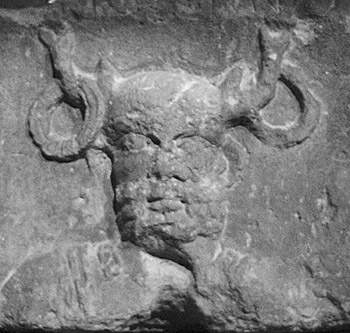 C(K)ernunnos on the Pillar of the Boatmen, from the Musée national du Moyen Âge (Museum of the Middle Ages), in Paris, France"The theonym [C]ernunnos appears on the Pillar of the Boatmen, a Gallo-Roman monument dating to the early 1st century CE, to label a god depicted with stag's antlers in their early stage of annual growth. [Both antlers have torcs hanging from them...The name has been compared to a divine epithet Carnonos in a Celtic inscription written in Greek characters at Montagnac, Hérault (as καρνονου, karnonou, in the dative case).A Gallo-Latin adjective carnuātus, "horned," is also found." https://en.wikipedia.org/wiki/Cernunnos The torcs of Kernunnos are relatable to the kernos ring.
C(K)ernunnos on the Pillar of the Boatmen, from the Musée national du Moyen Âge (Museum of the Middle Ages), in Paris, France"The theonym [C]ernunnos appears on the Pillar of the Boatmen, a Gallo-Roman monument dating to the early 1st century CE, to label a god depicted with stag's antlers in their early stage of annual growth. [Both antlers have torcs hanging from them...The name has been compared to a divine epithet Carnonos in a Celtic inscription written in Greek characters at Montagnac, Hérault (as καρνονου, karnonou, in the dative case).A Gallo-Latin adjective carnuātus, "horned," is also found." https://en.wikipedia.org/wiki/Cernunnos The torcs of Kernunnos are relatable to the kernos ring. Terracotta kernos from the Cycladic period (ca.2000 BC), found at Melos
Terracotta kernos from the Cycladic period (ca.2000 BC), found at Melos
![]()
![Image result for black drongo zebu]() Zebu, bos indicus PLUS black drongo bird (perched on the back of the bull) This bird is called పసులపోలిగాడు pasula-pōli-gāḍu 'friend of cattle'.
Zebu, bos indicus PLUS black drongo bird (perched on the back of the bull) This bird is called పసులపోలిగాడు pasula-pōli-gāḍu 'friend of cattle'.
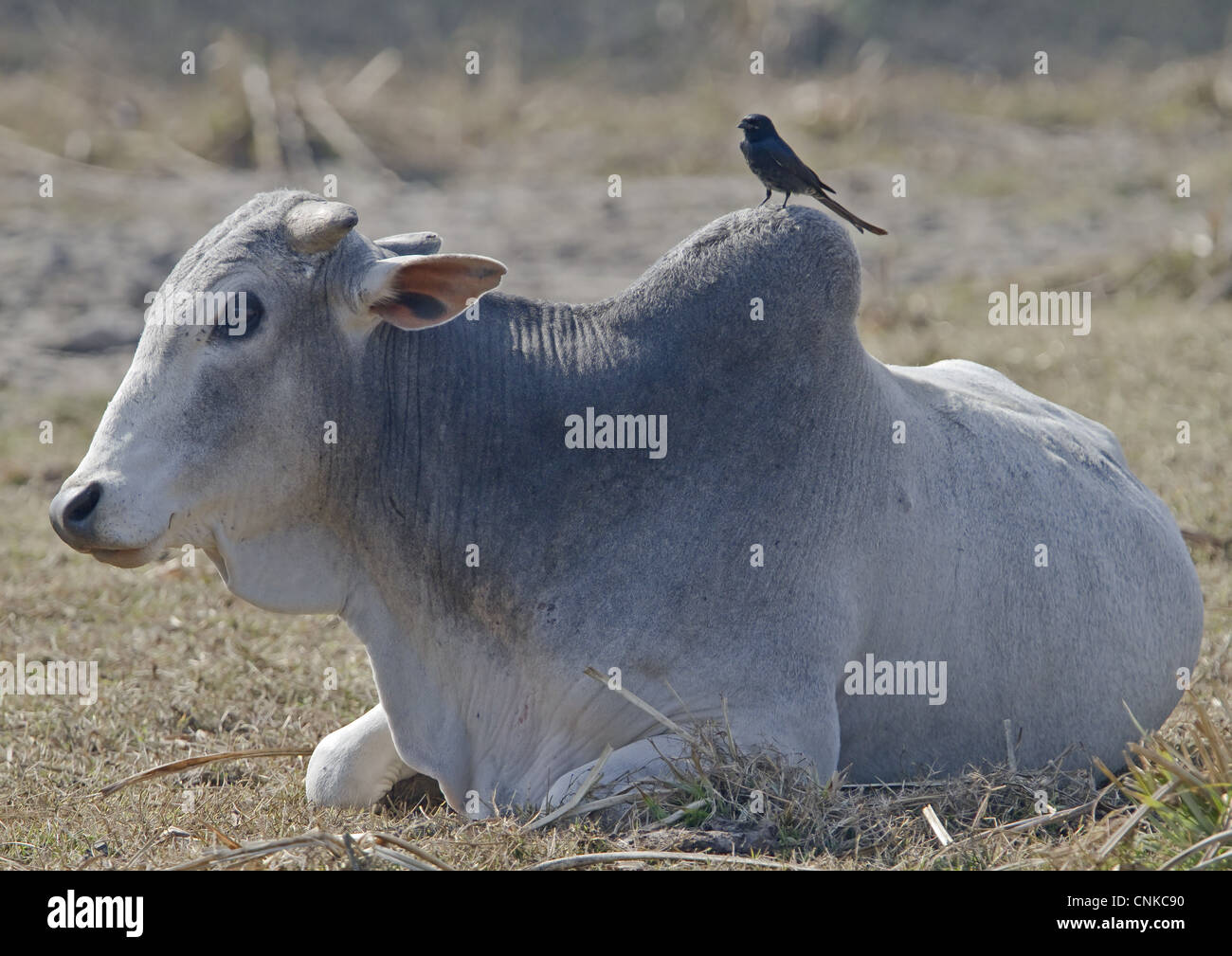 Zebu, bos indicus PLUS black drongo bird (perched on the back of the bull) This bird is called పసులపోలిగాడు pasula-pōli-gāḍu 'friend of cattle'.
Zebu, bos indicus PLUS black drongo bird (perched on the back of the bull) This bird is called పసులపోలిగాడు pasula-pōli-gāḍu 'friend of cattle'.





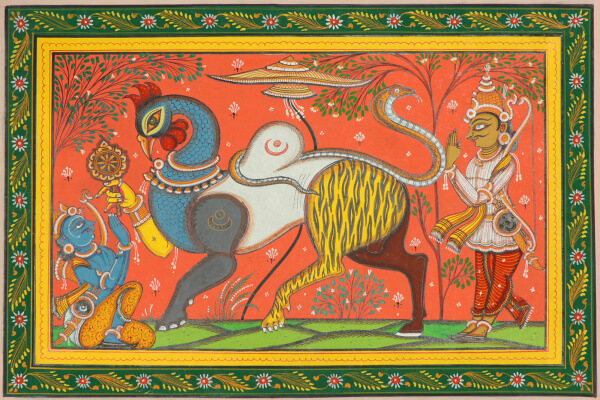


 Woodblock print
Woodblock print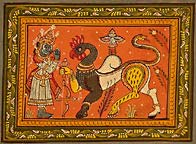
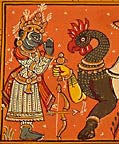



 H-594 I suggest that this is a composite animal because, in addition to the trunk of the elephant, hoofed legs of a bovine are shown. It also has scarves on thes shoulder.
H-594 I suggest that this is a composite animal because, in addition to the trunk of the elephant, hoofed legs of a bovine are shown. It also has scarves on thes shoulder. 


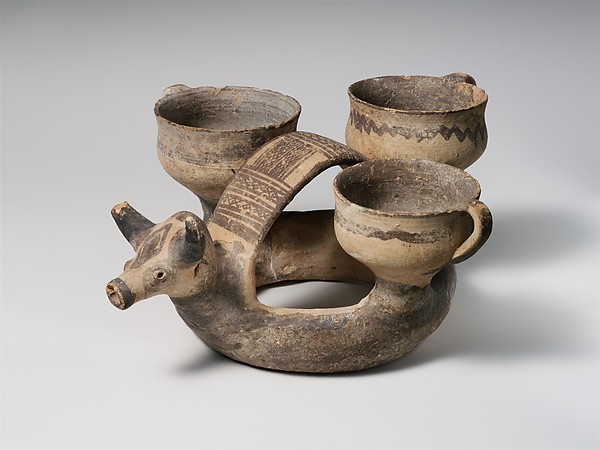


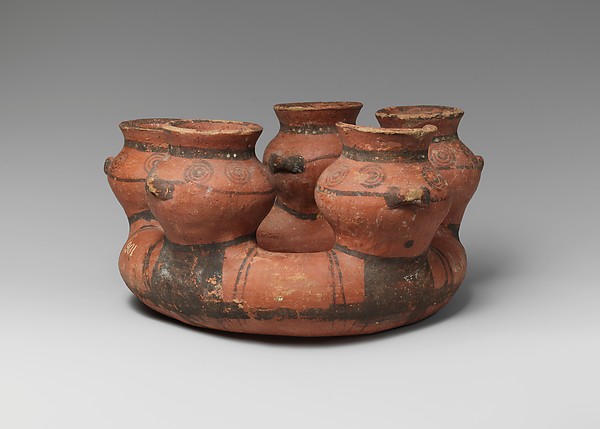


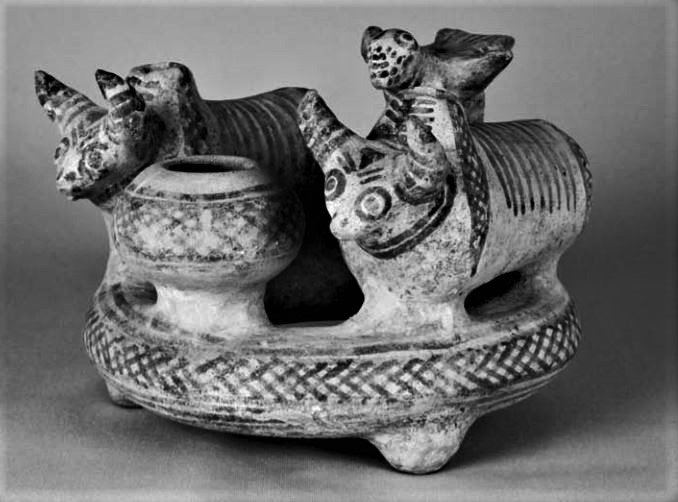
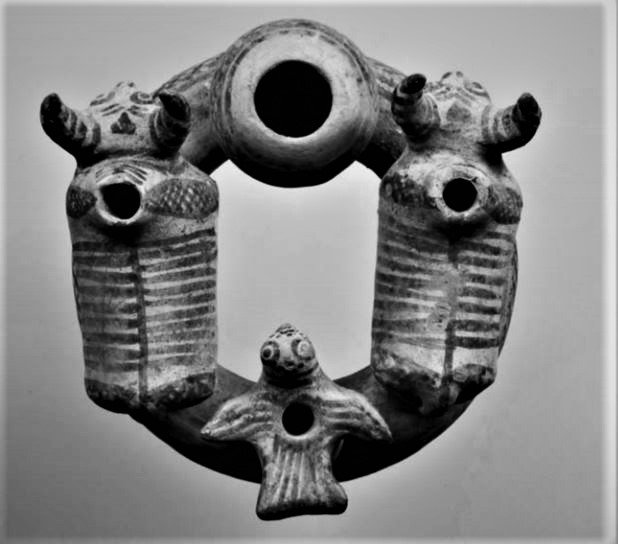
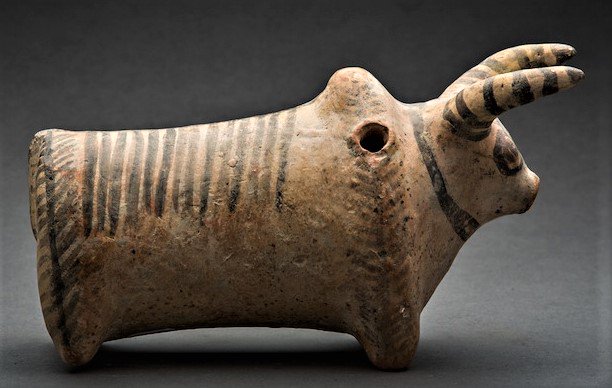
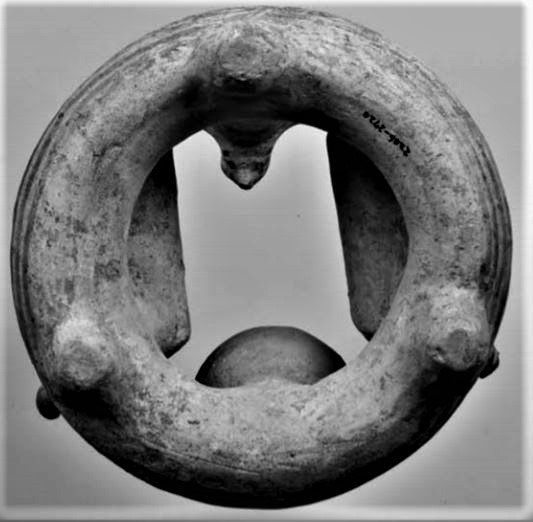



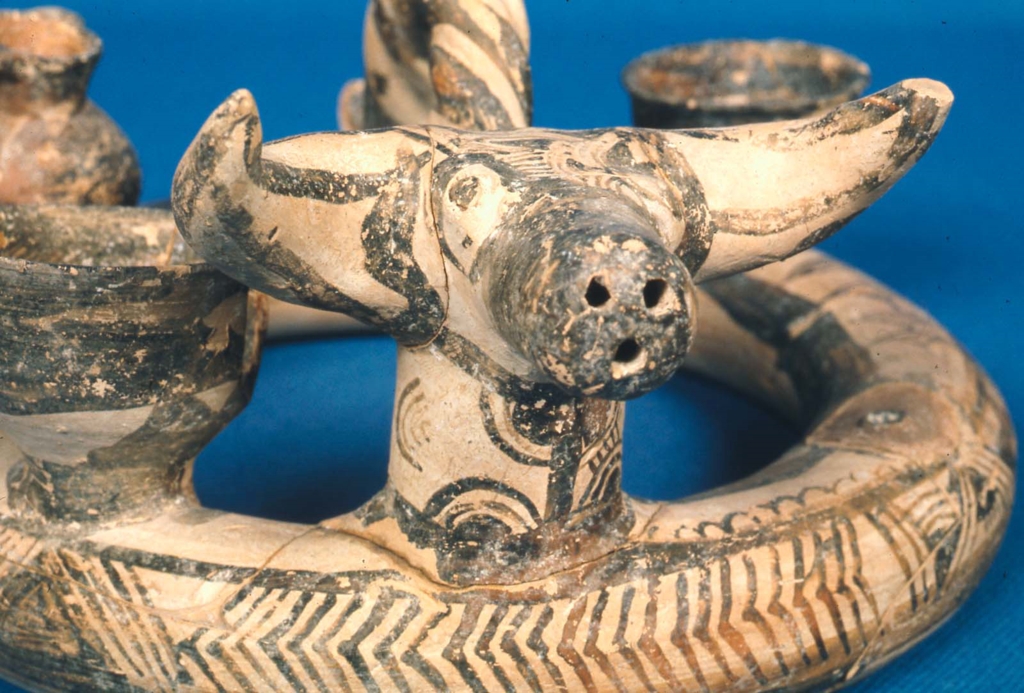




















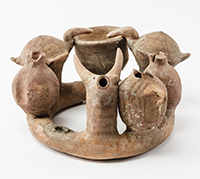



 Elephant. Peacock.
Elephant. Peacock.





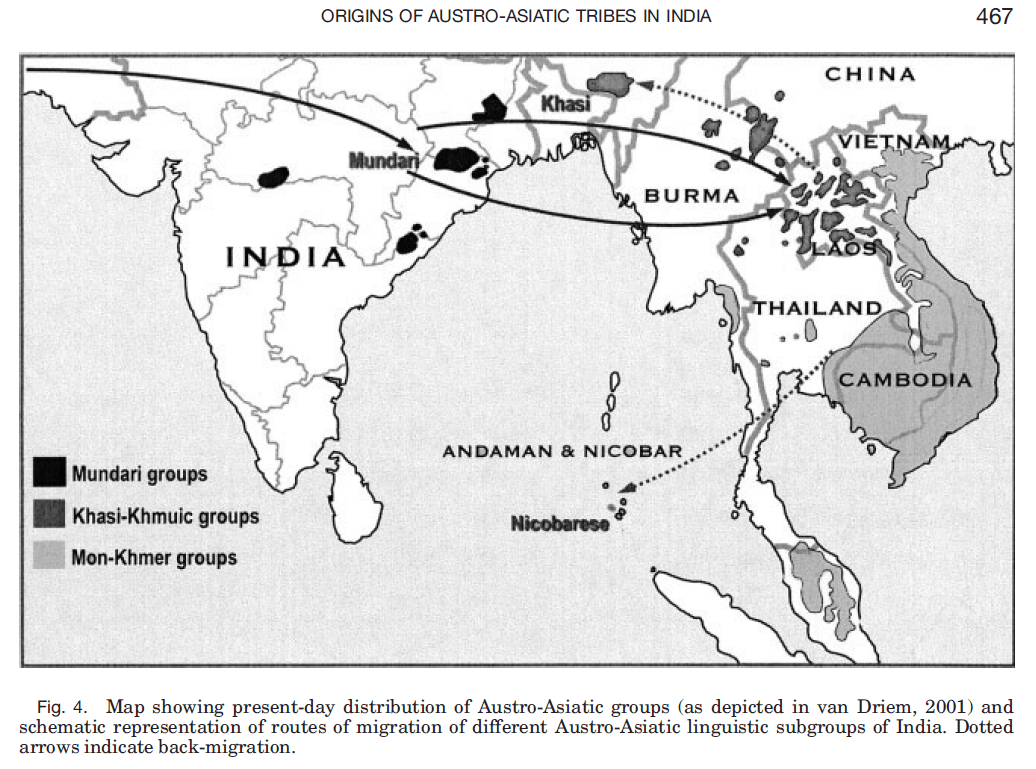





























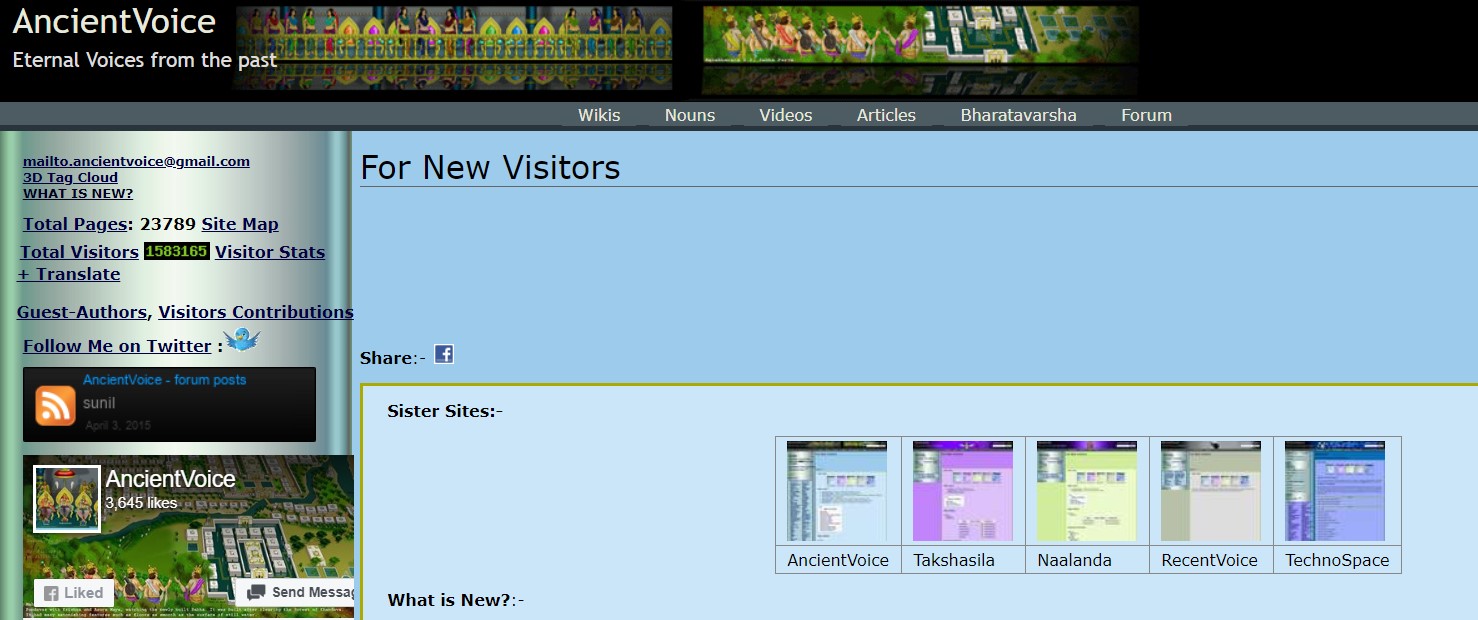
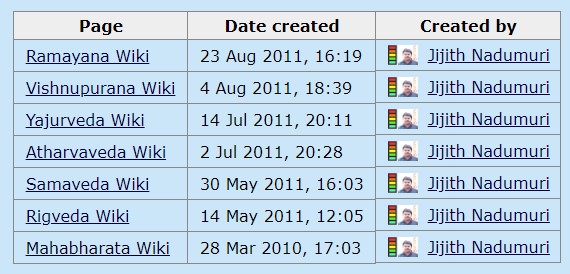
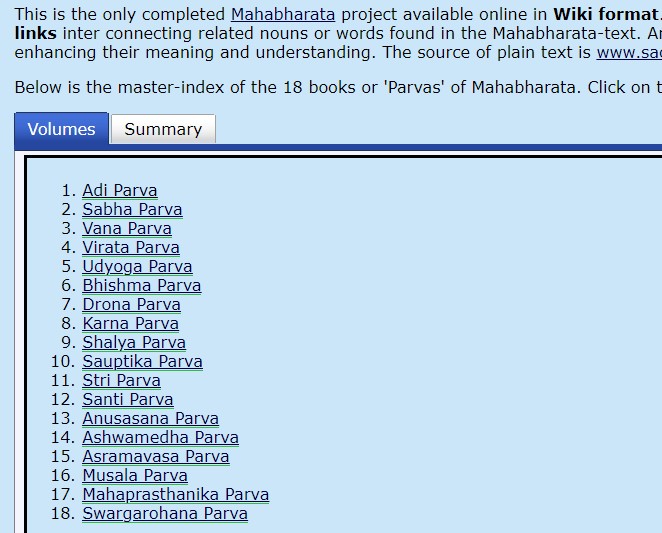


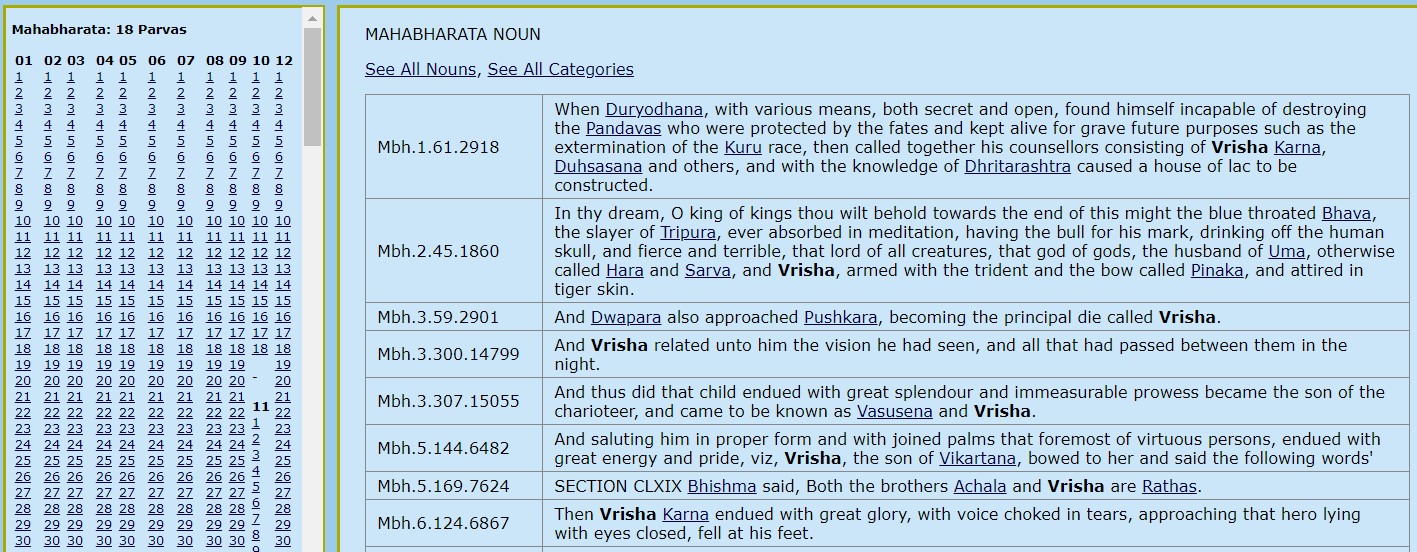
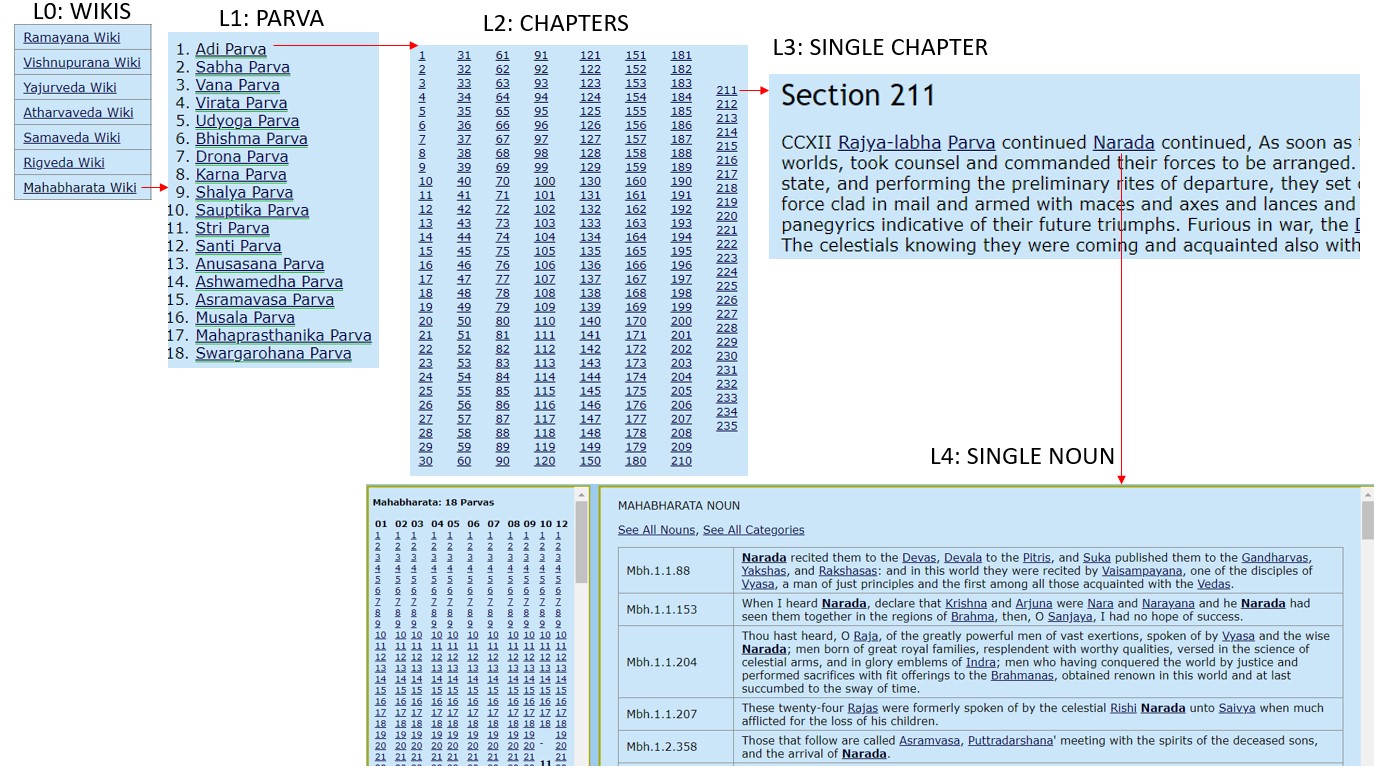
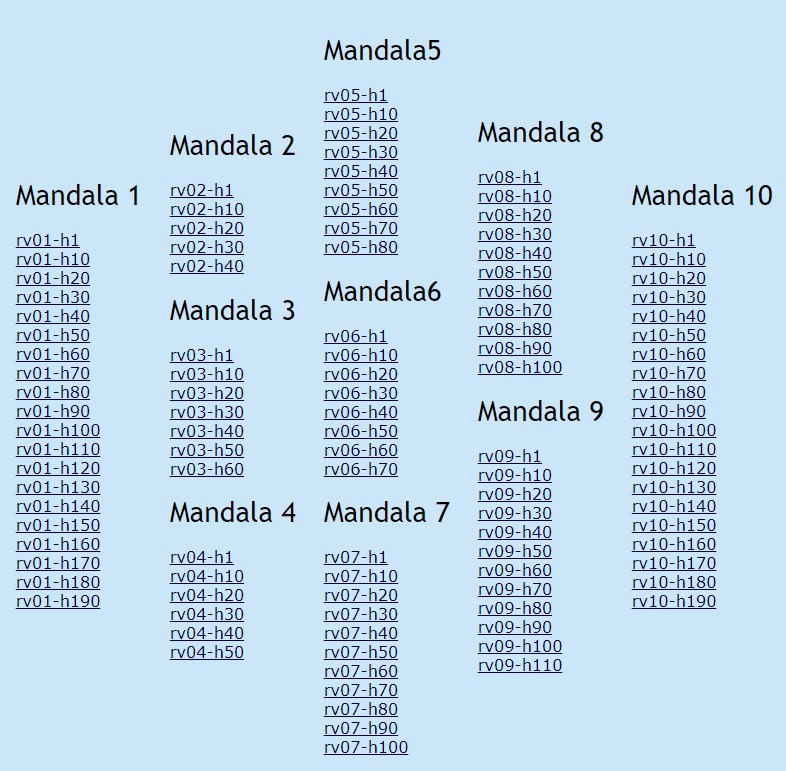

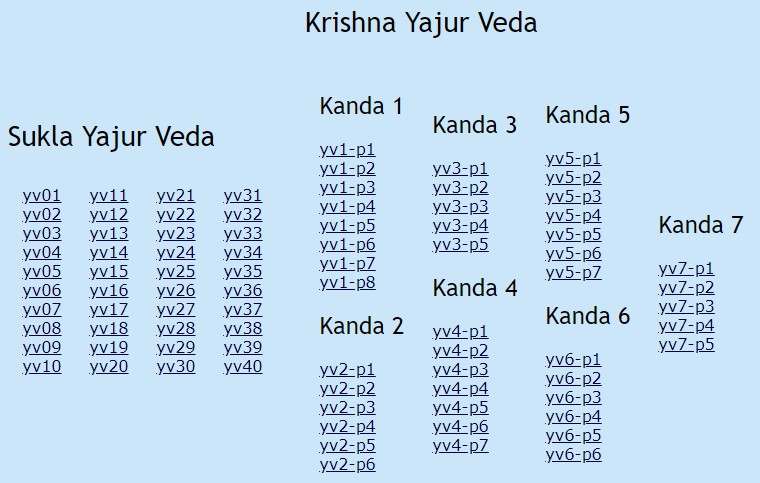
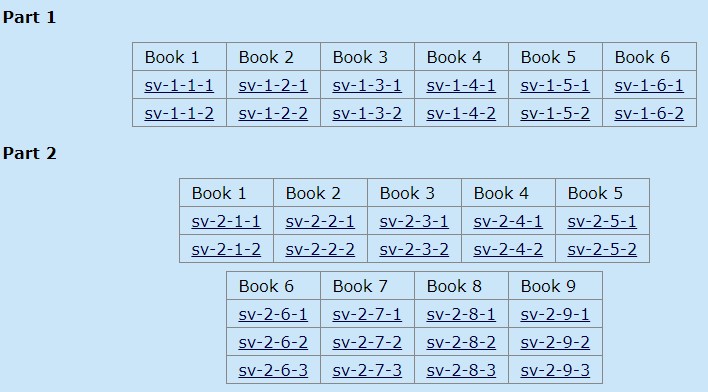
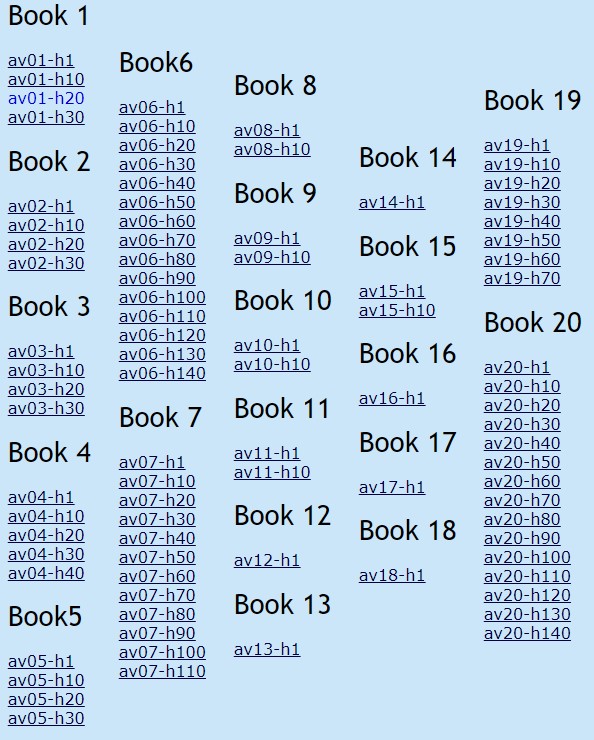
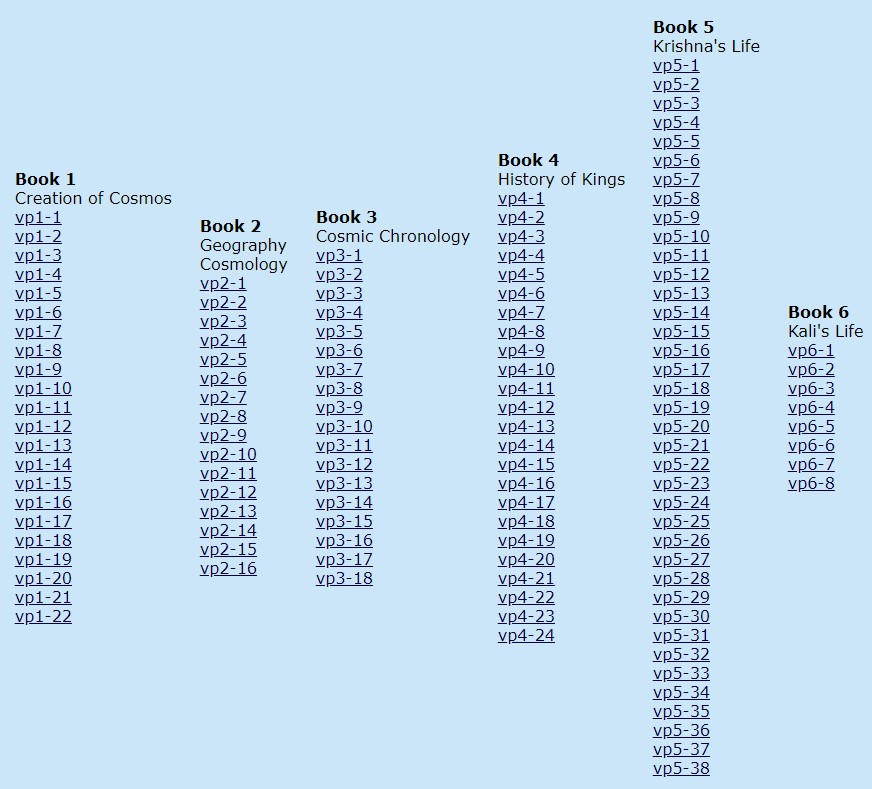
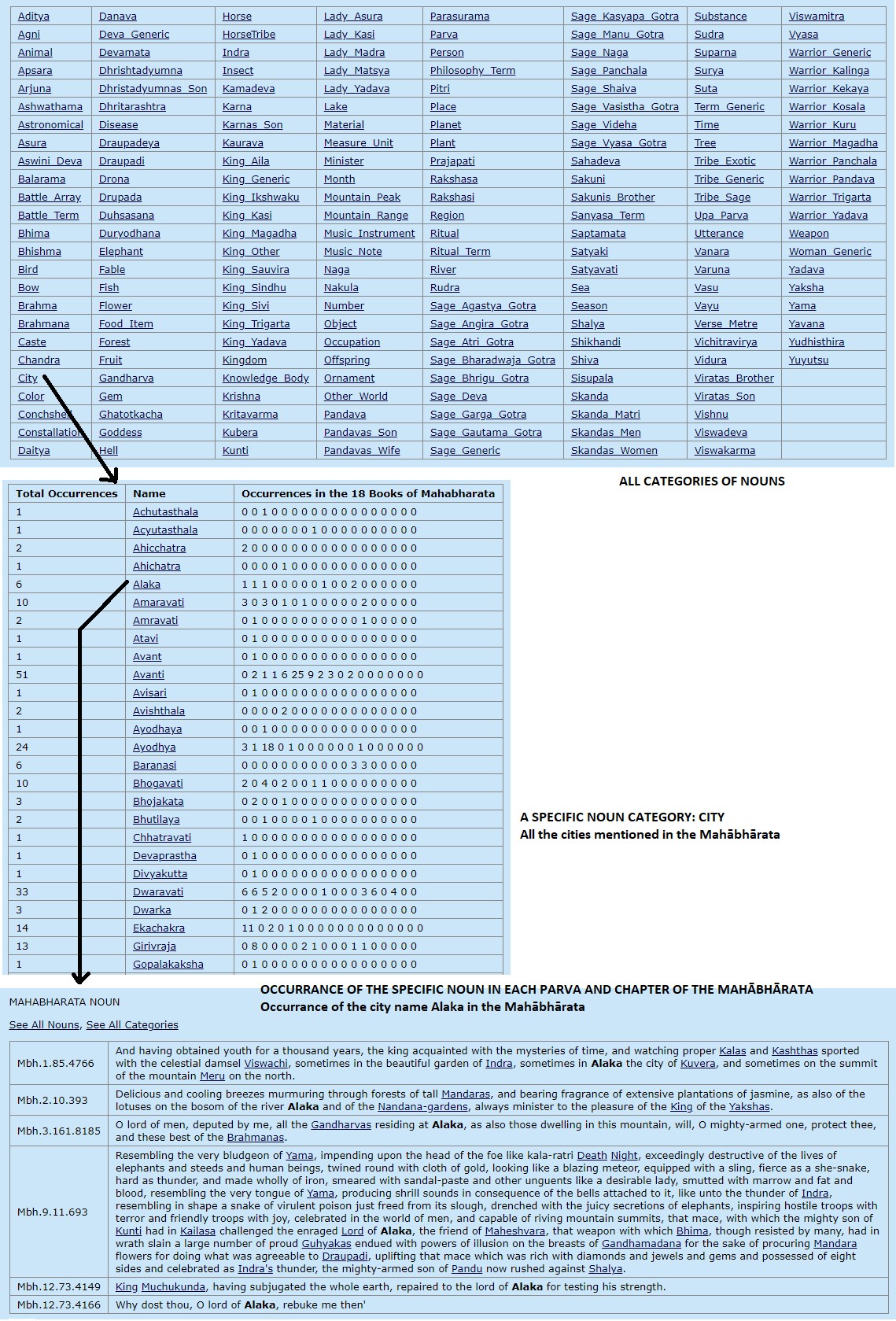
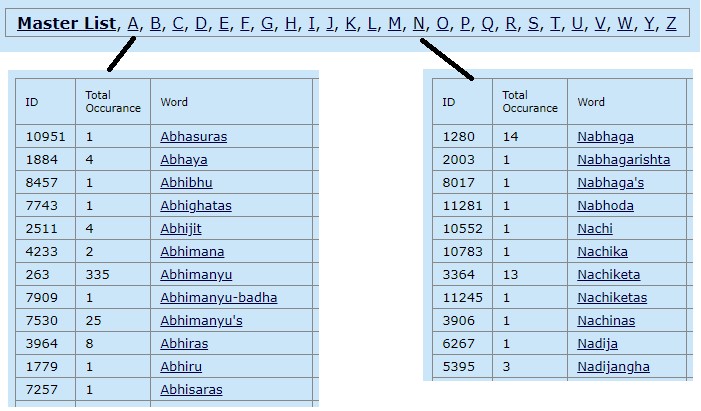
 Figure 16: The Menu System
Figure 16: The Menu System